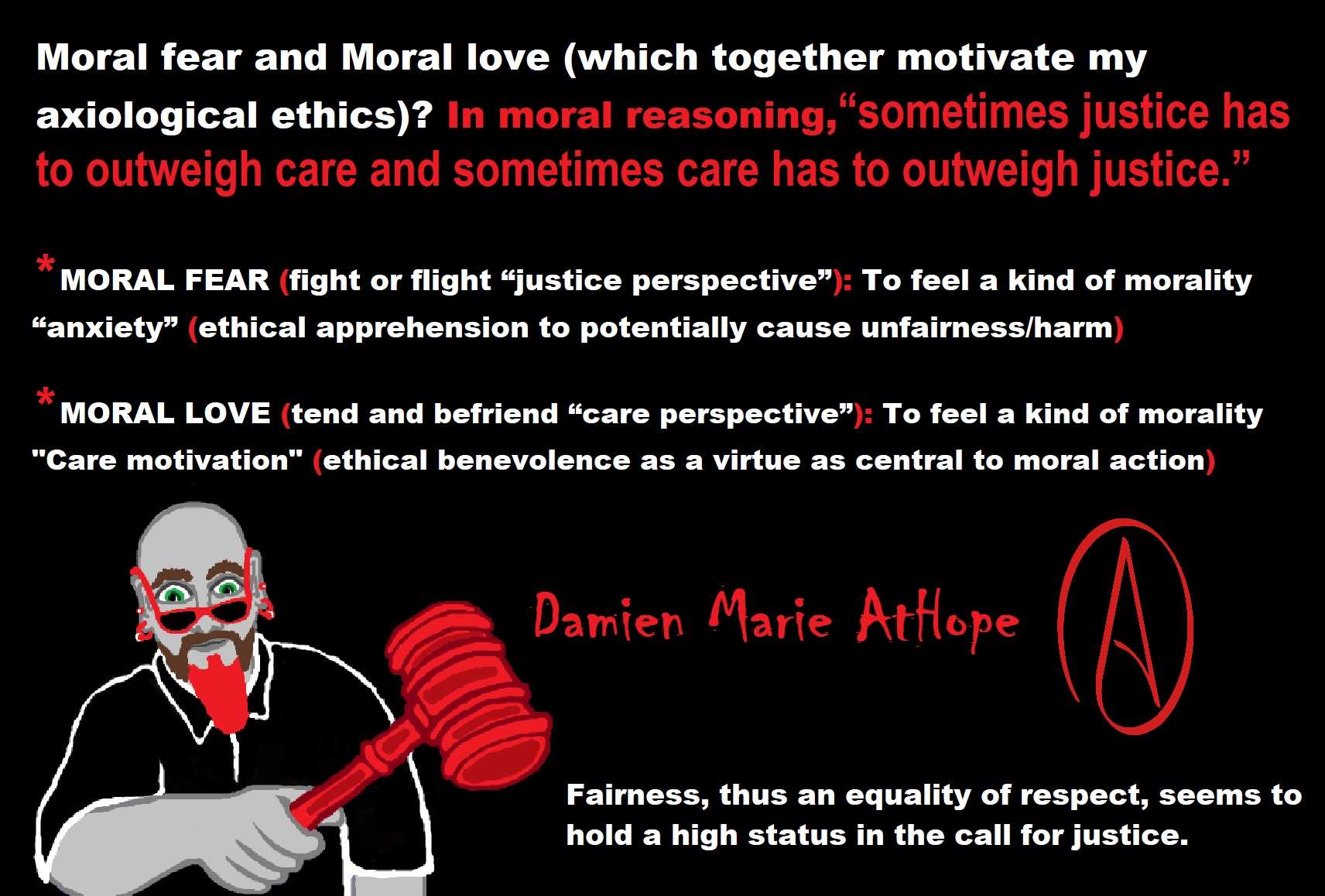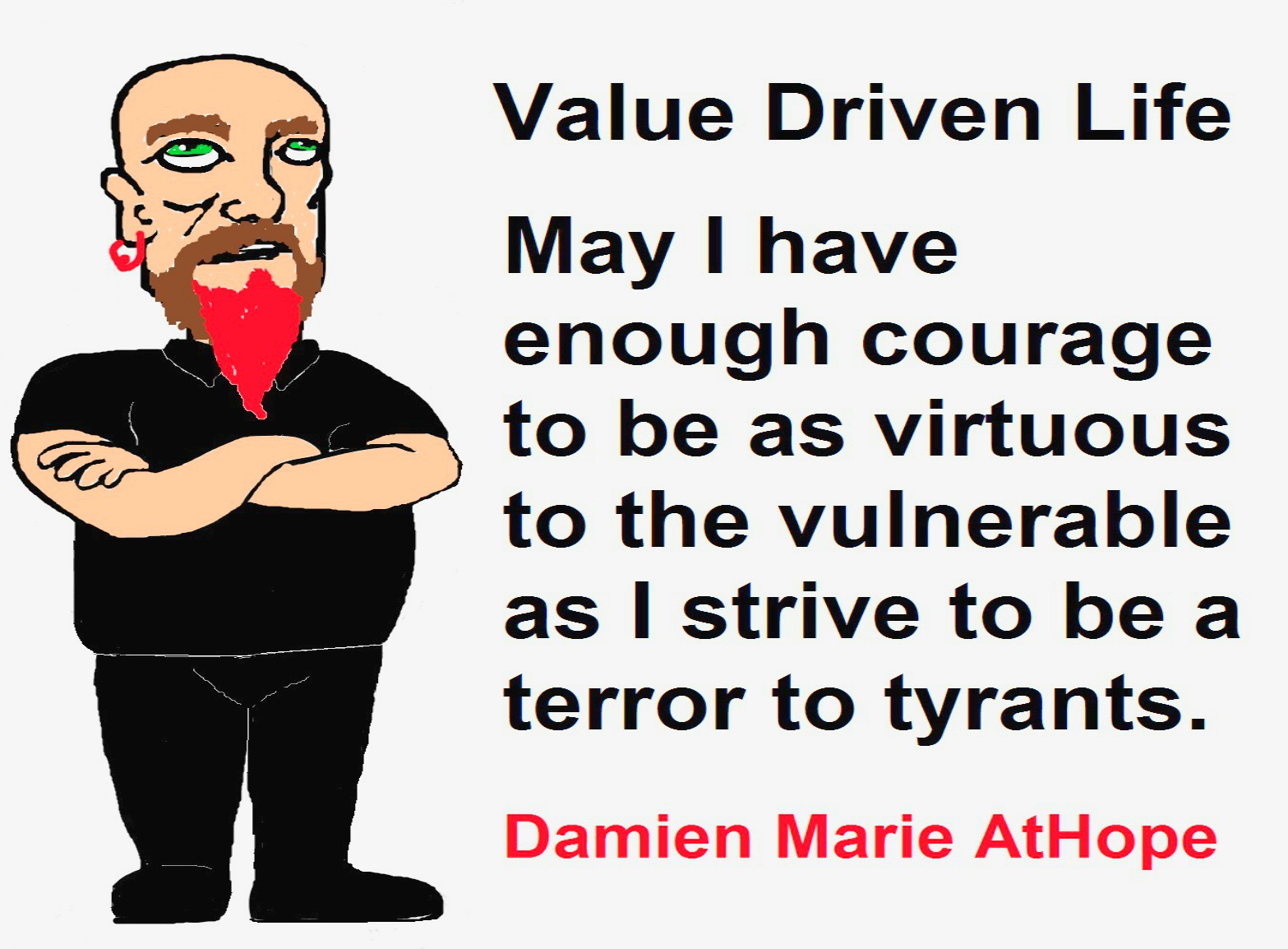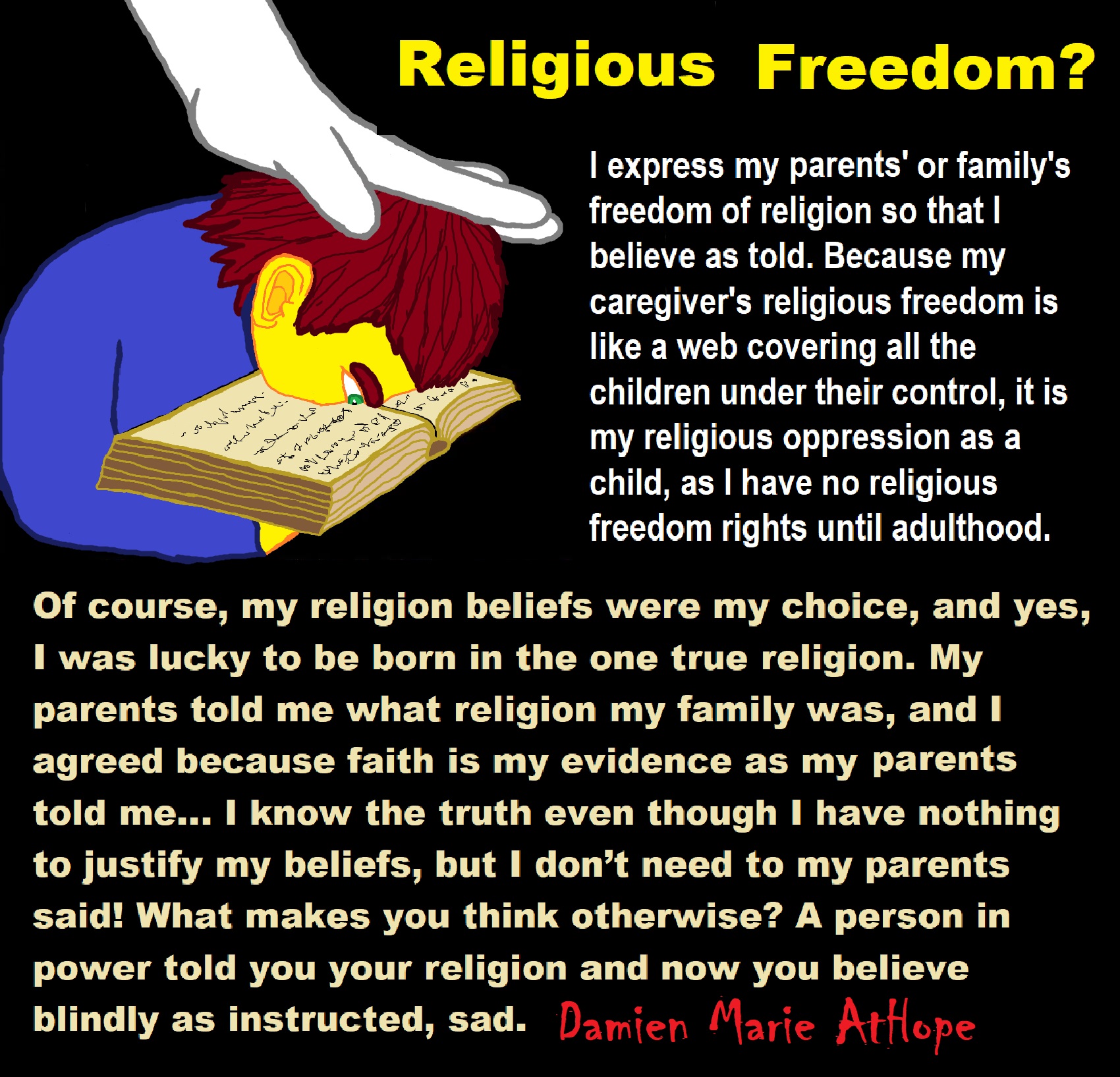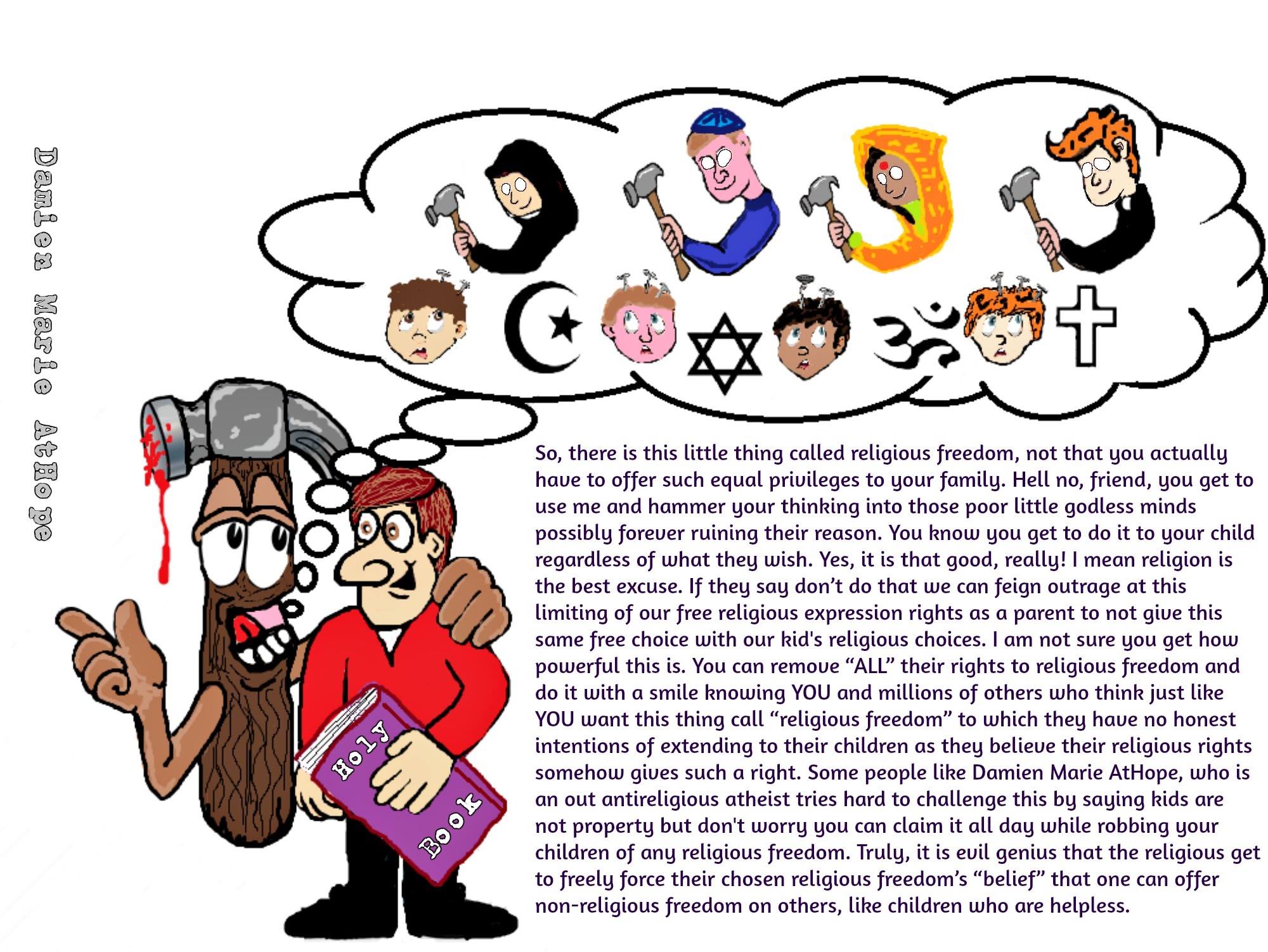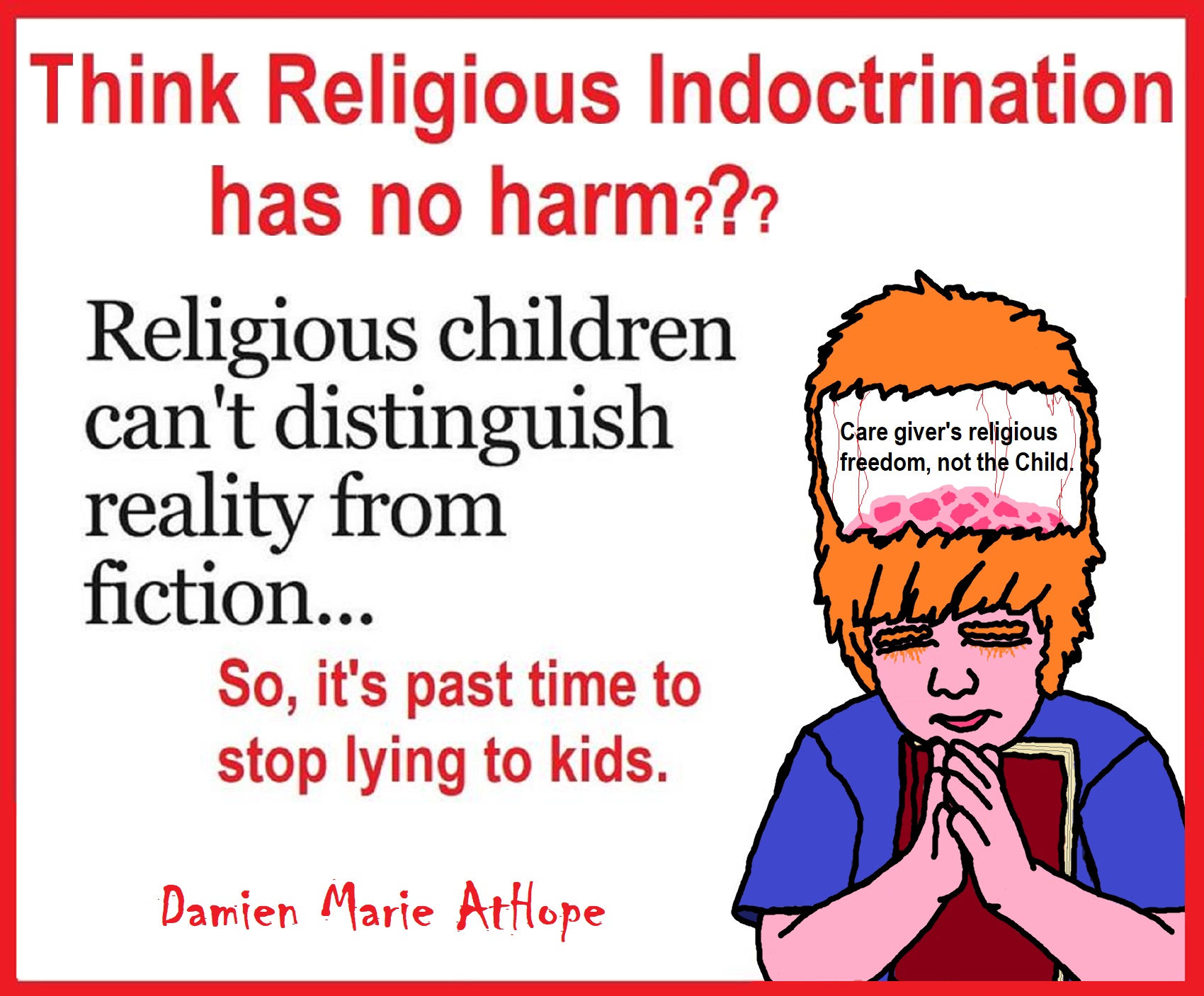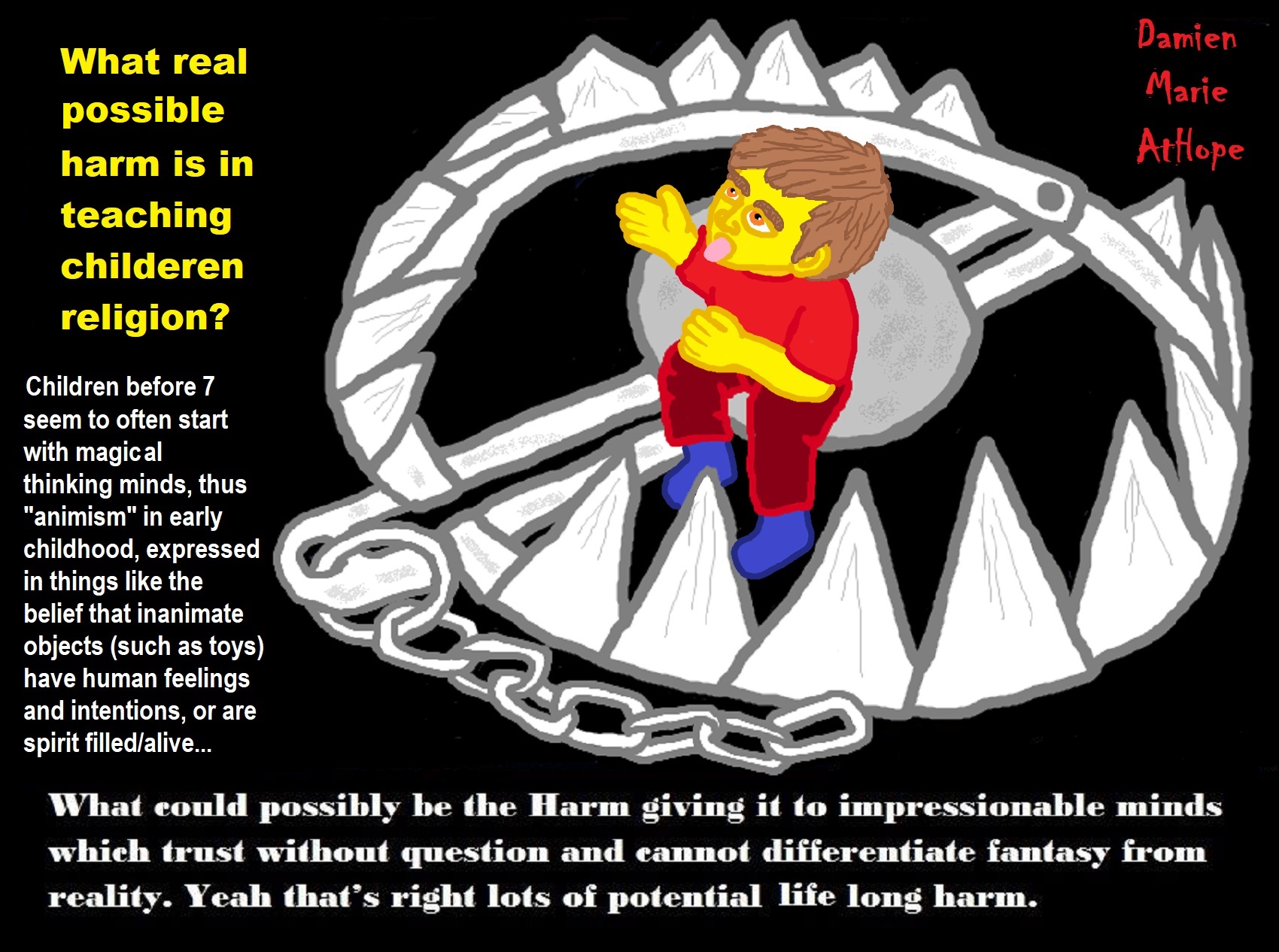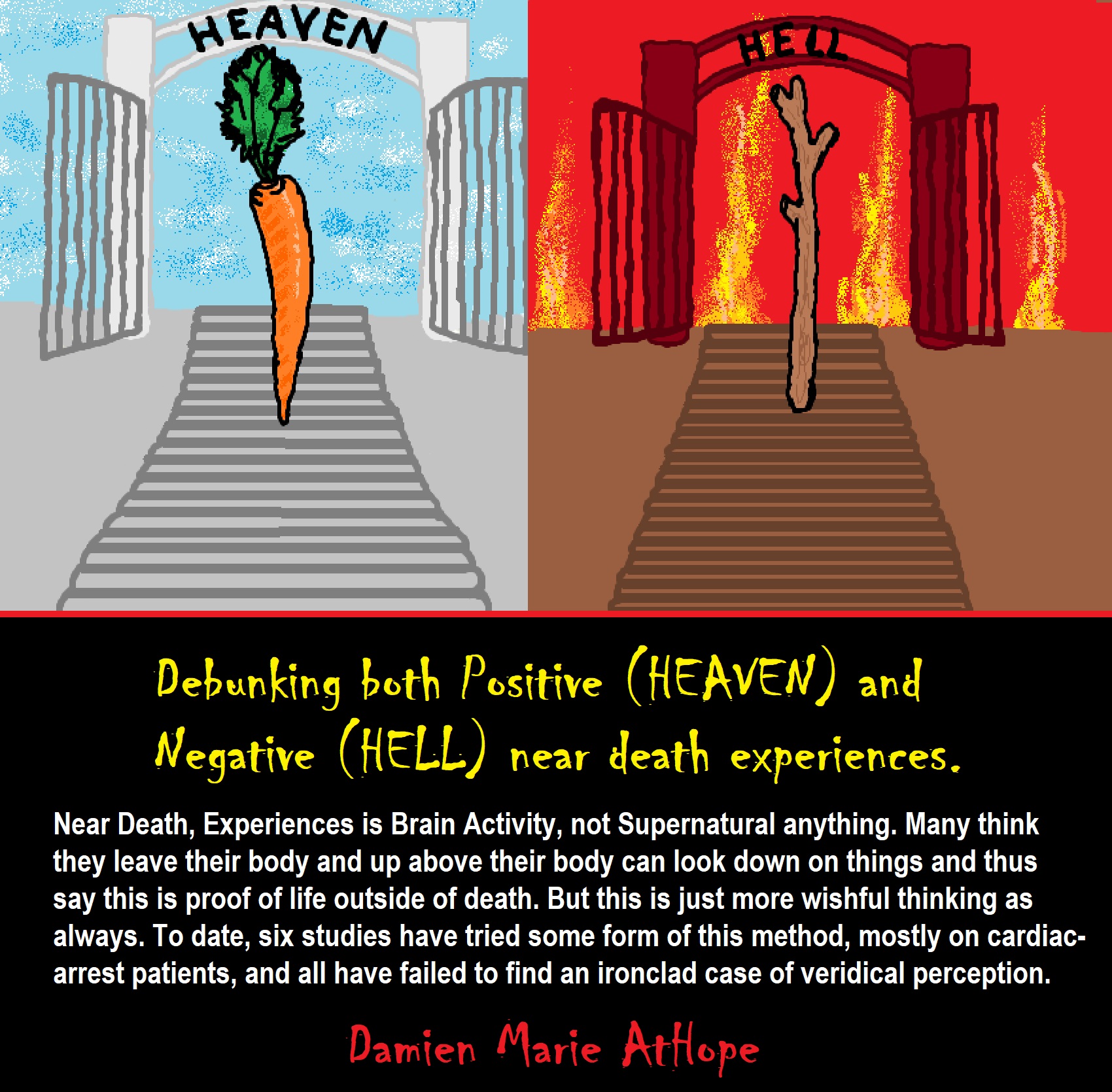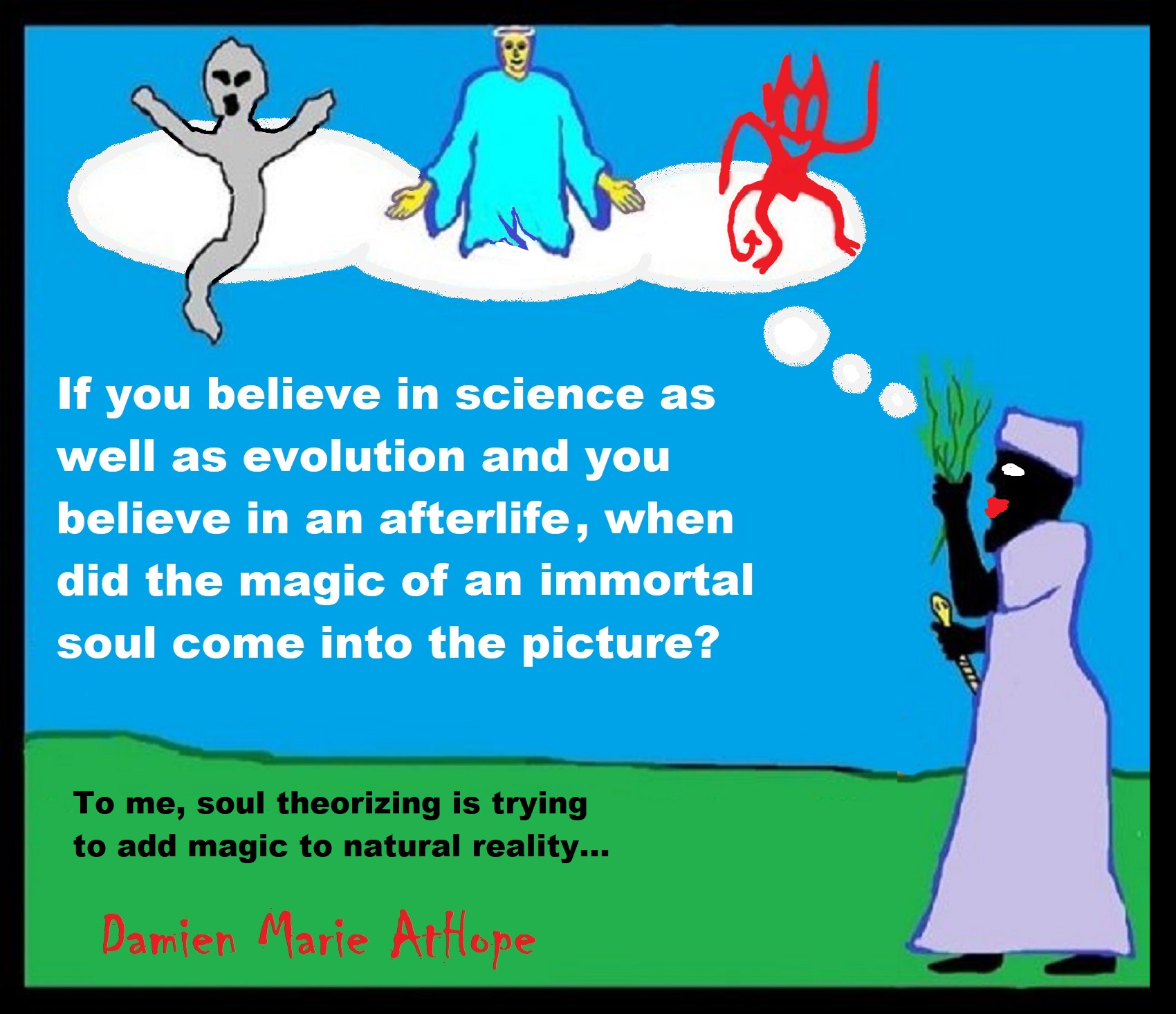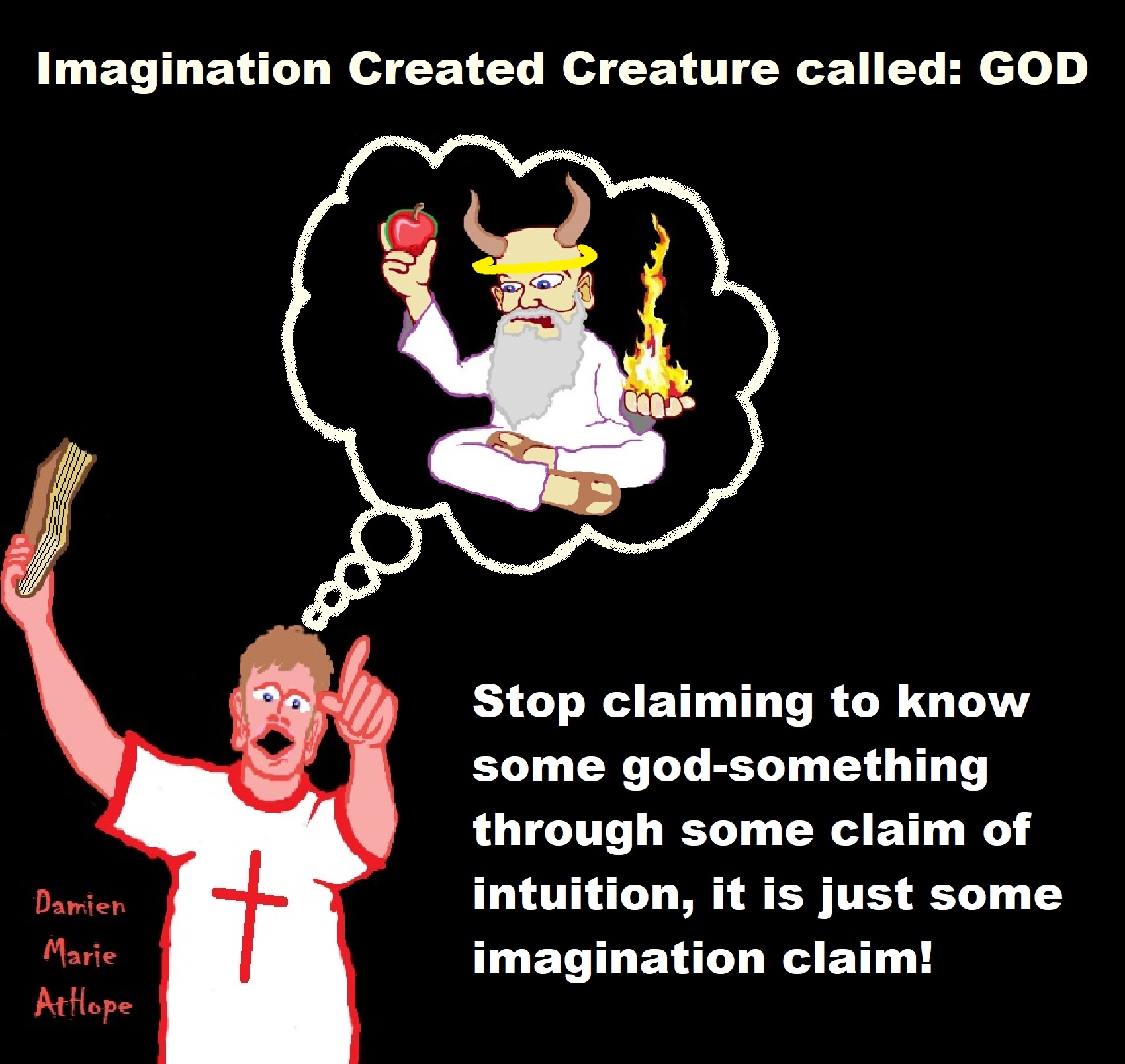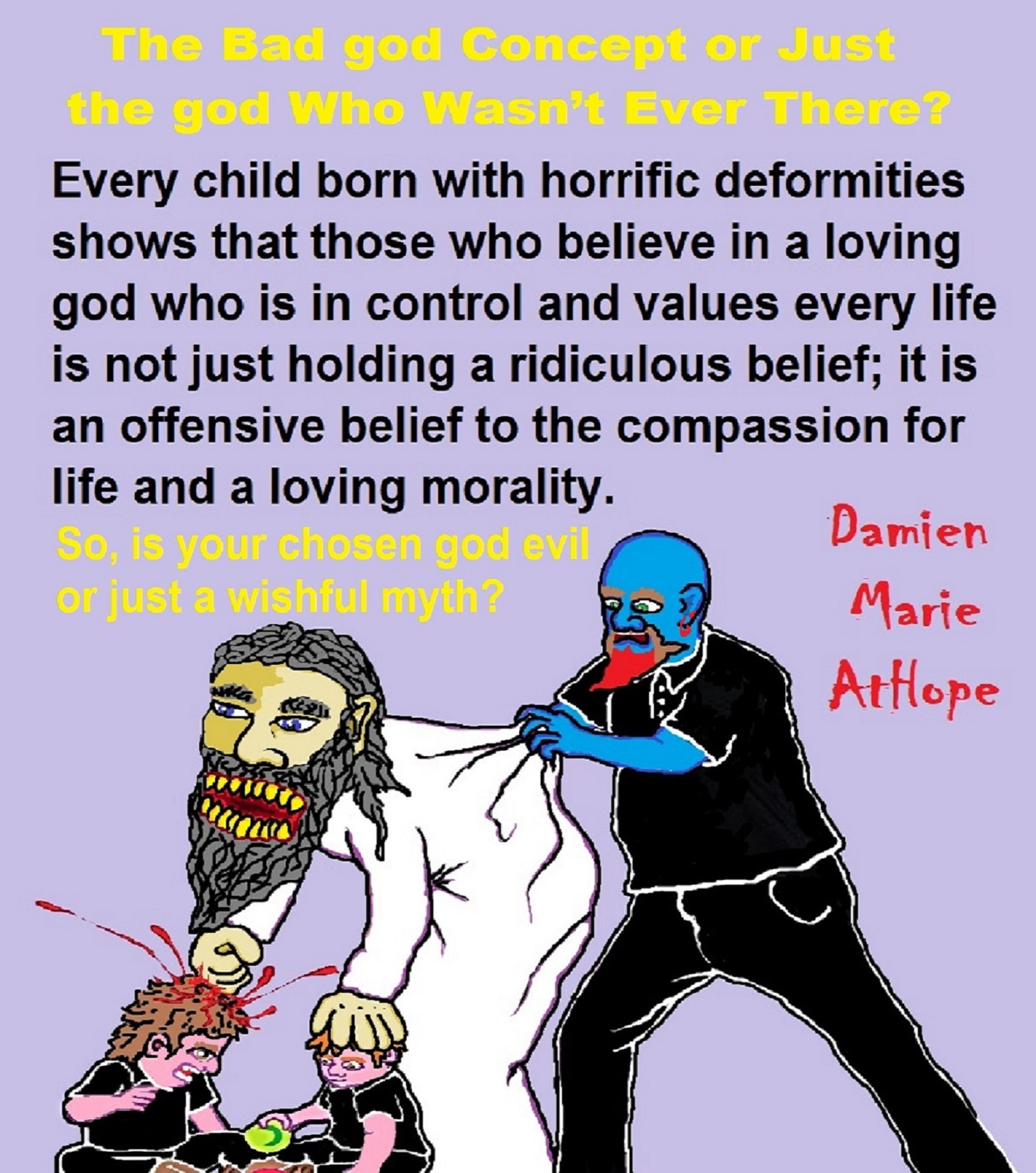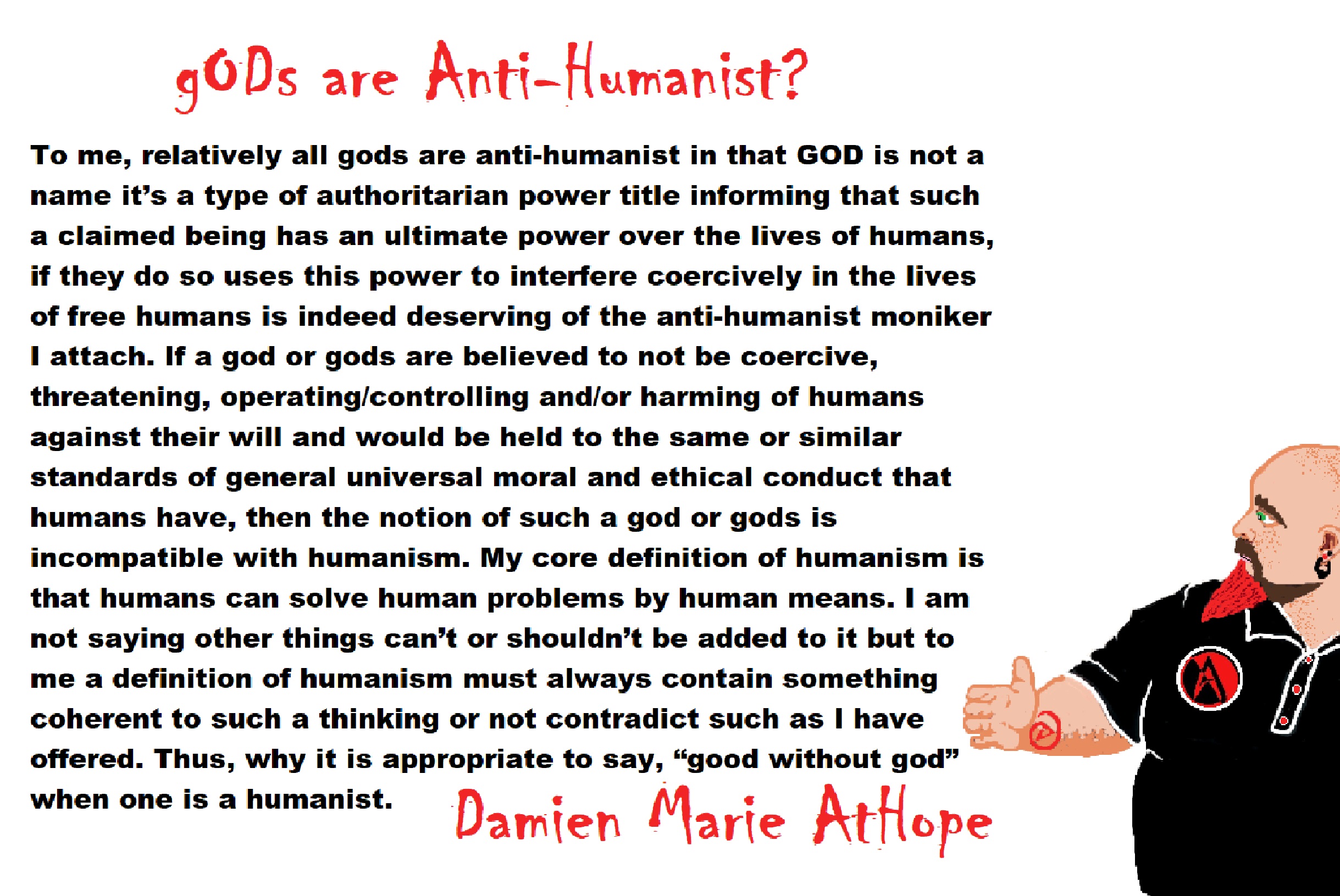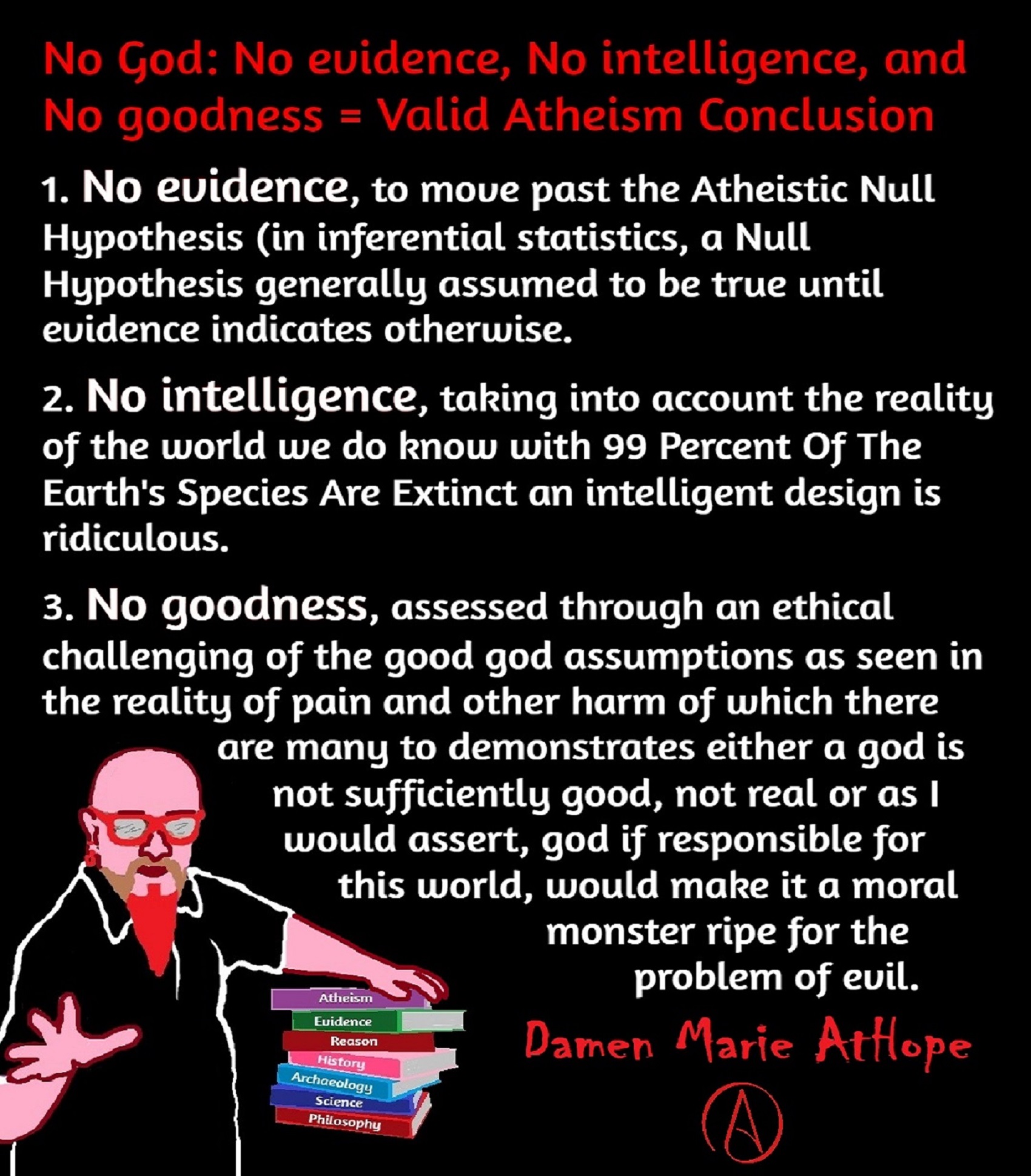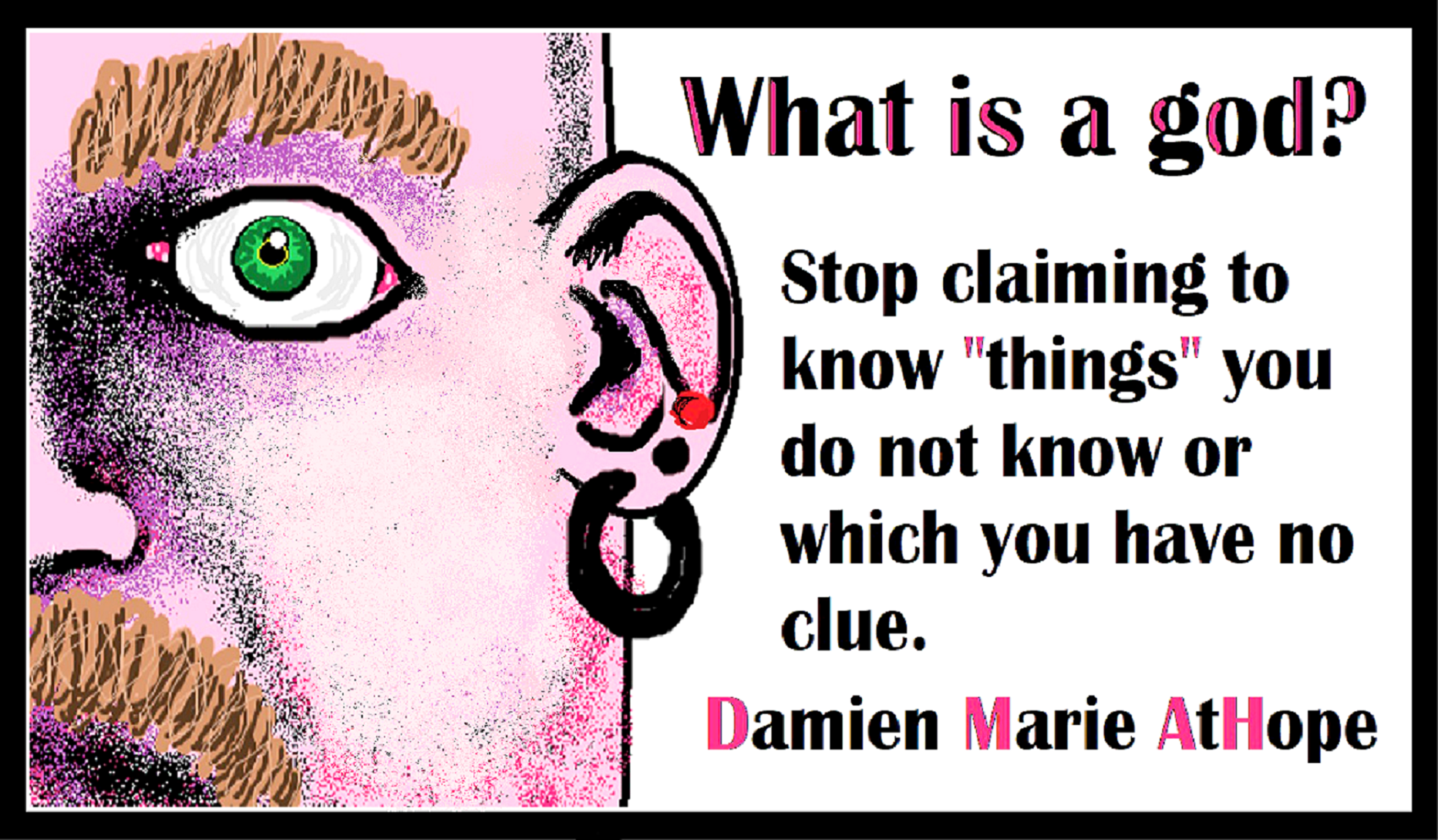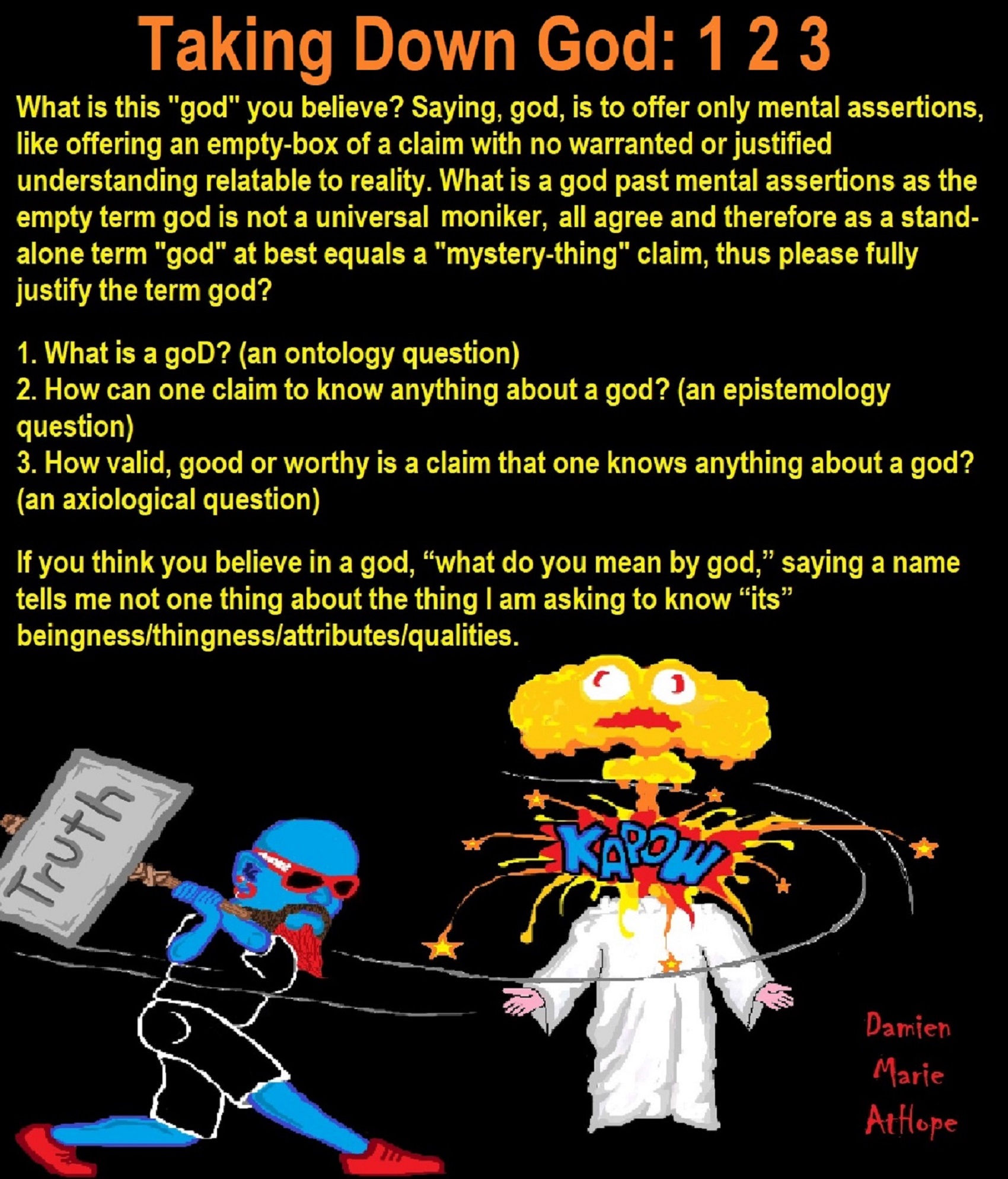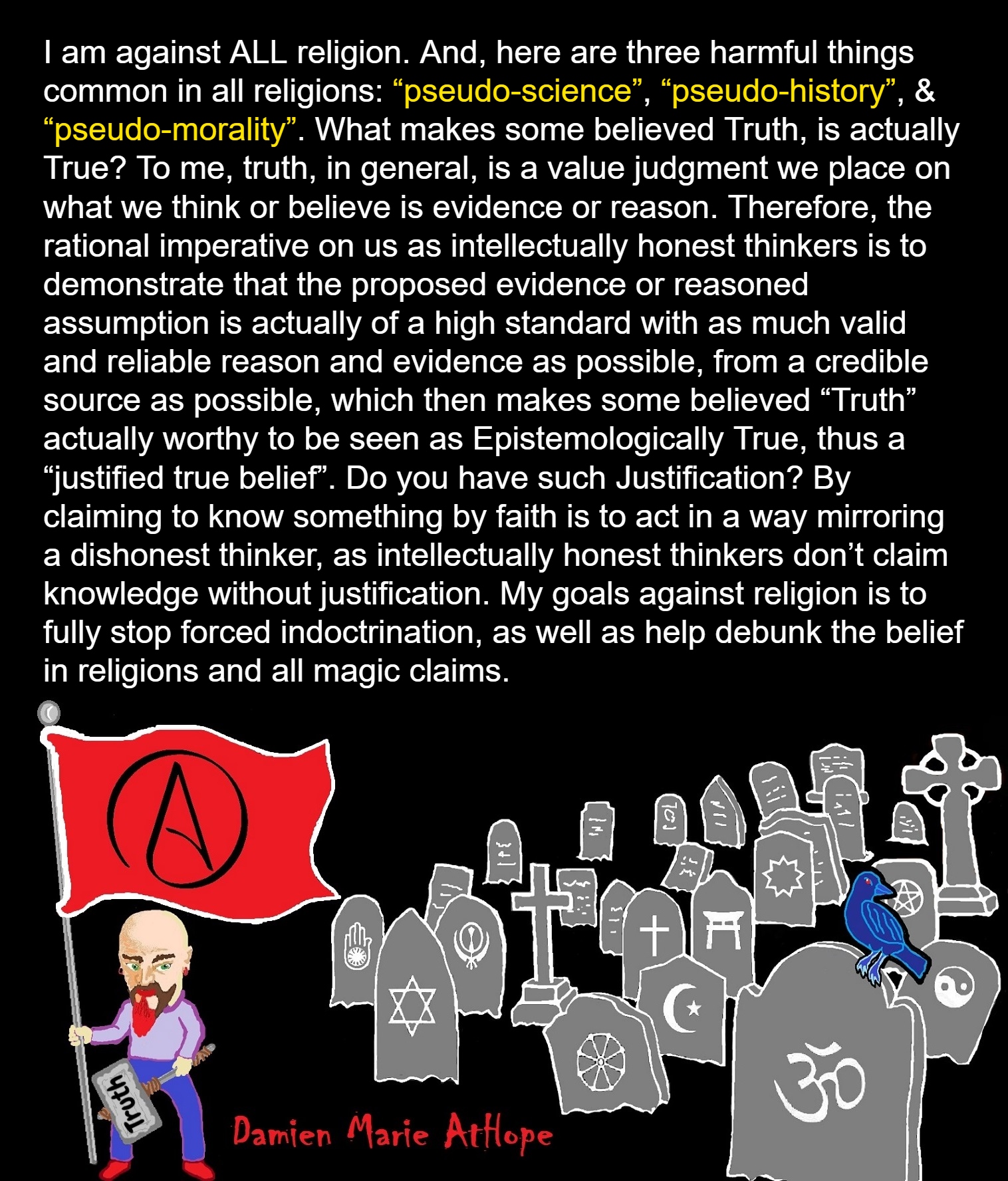
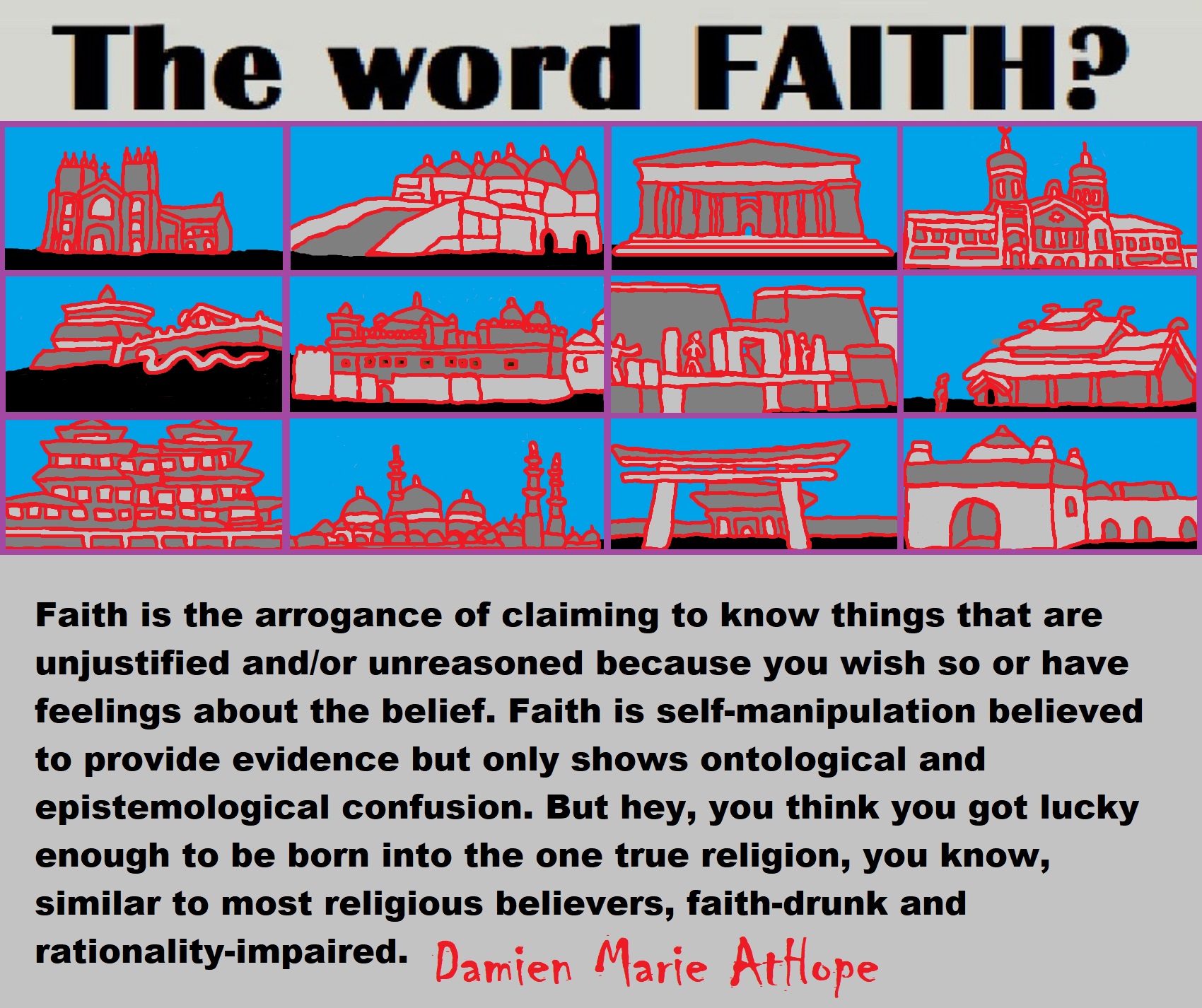
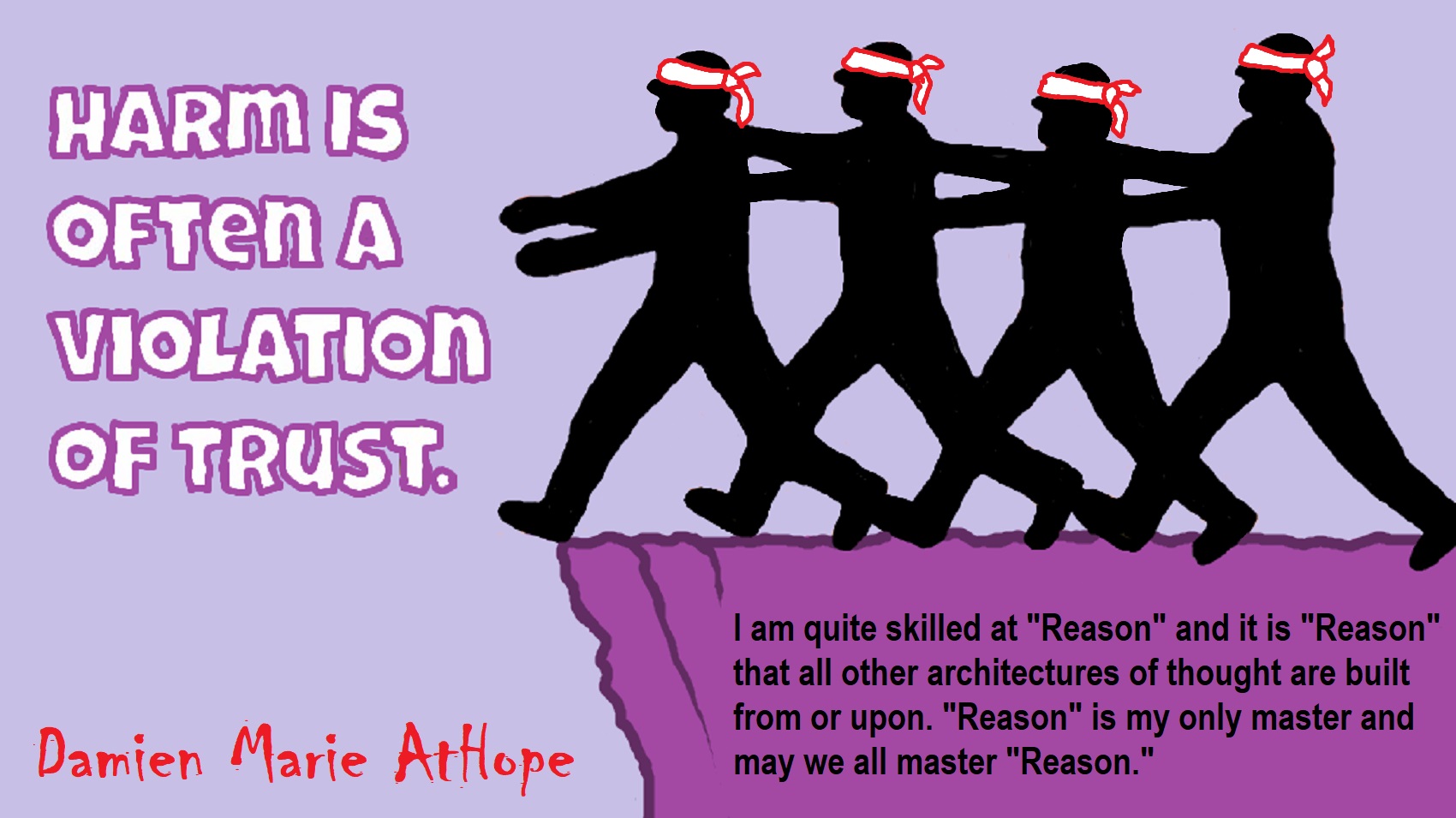
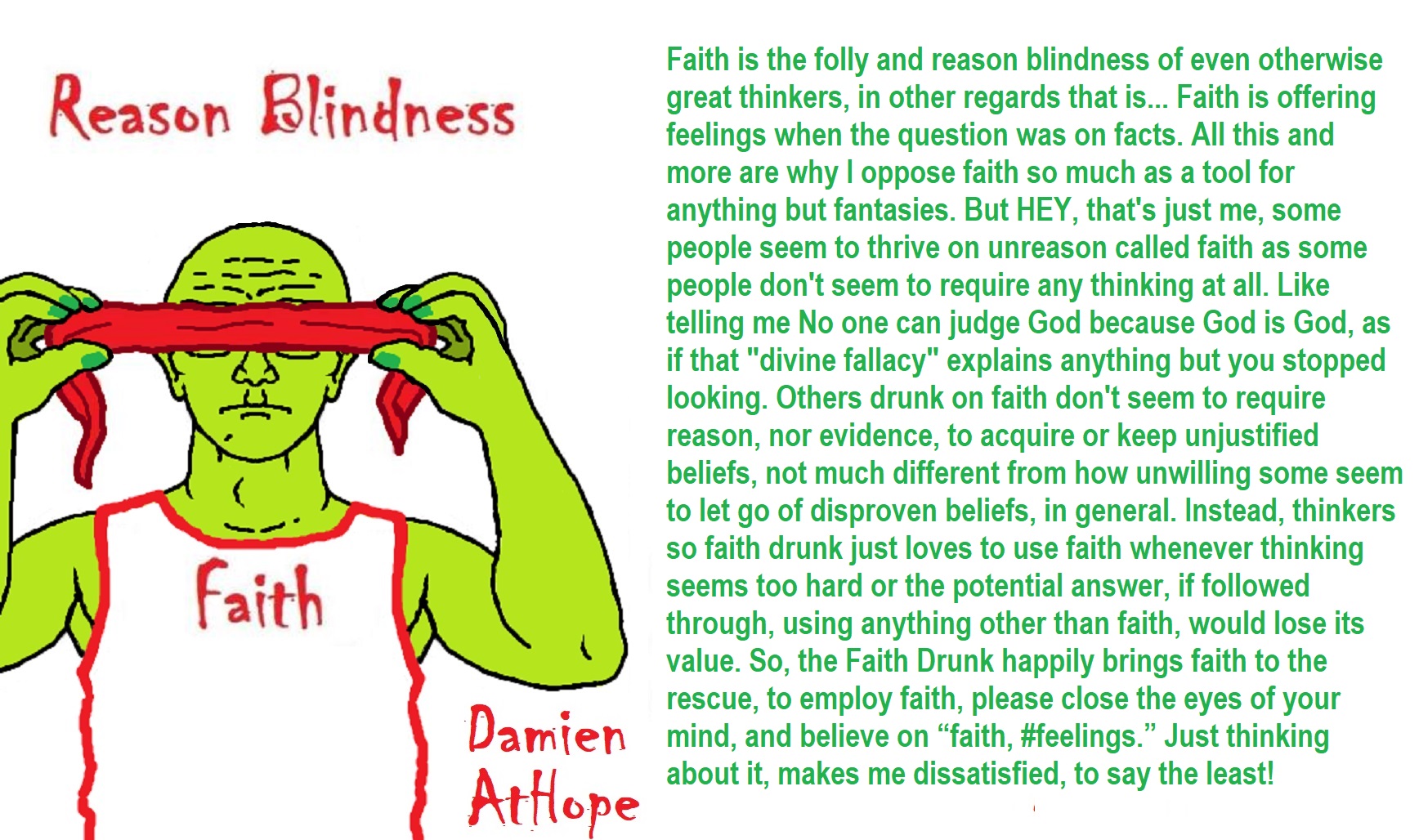
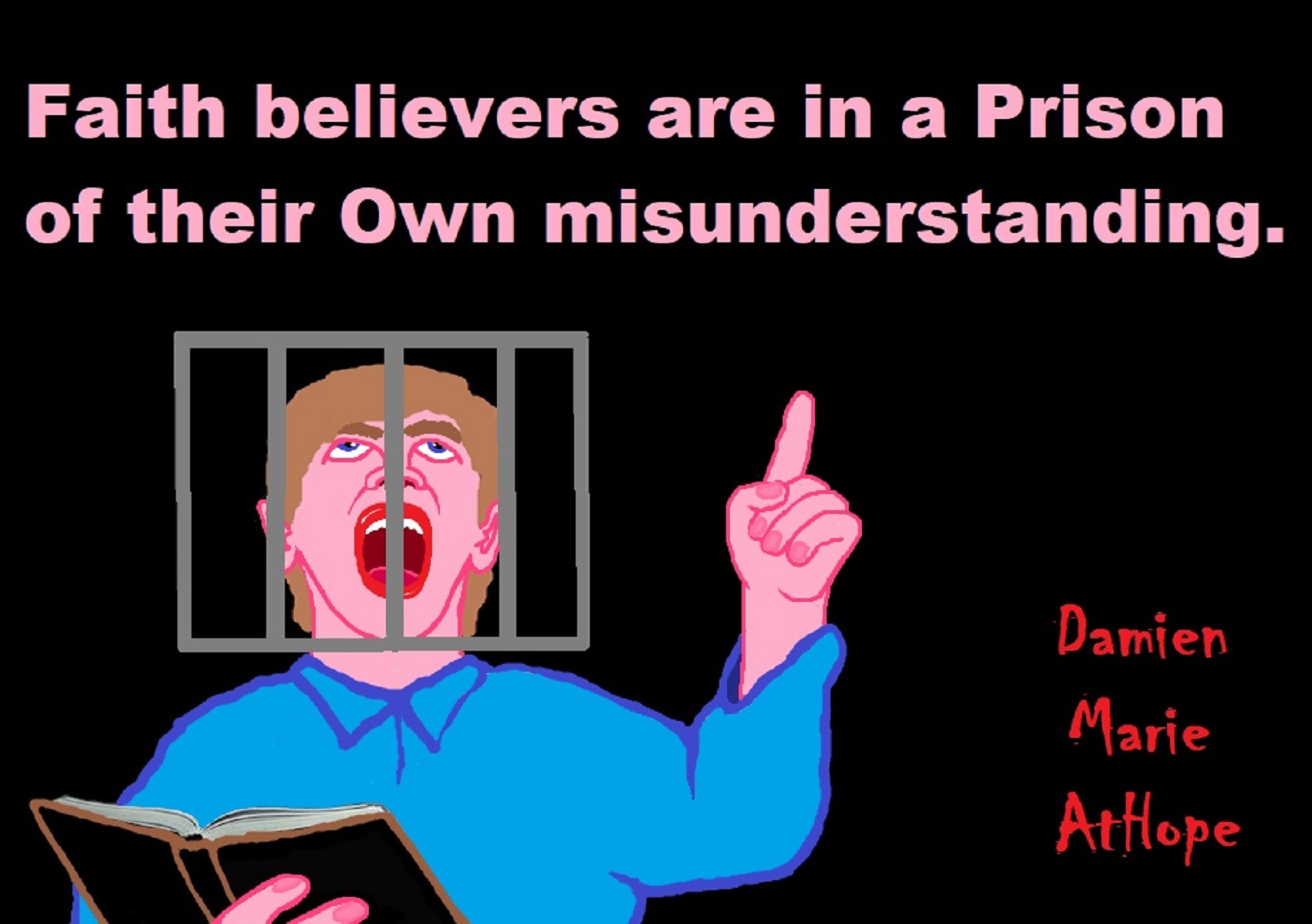
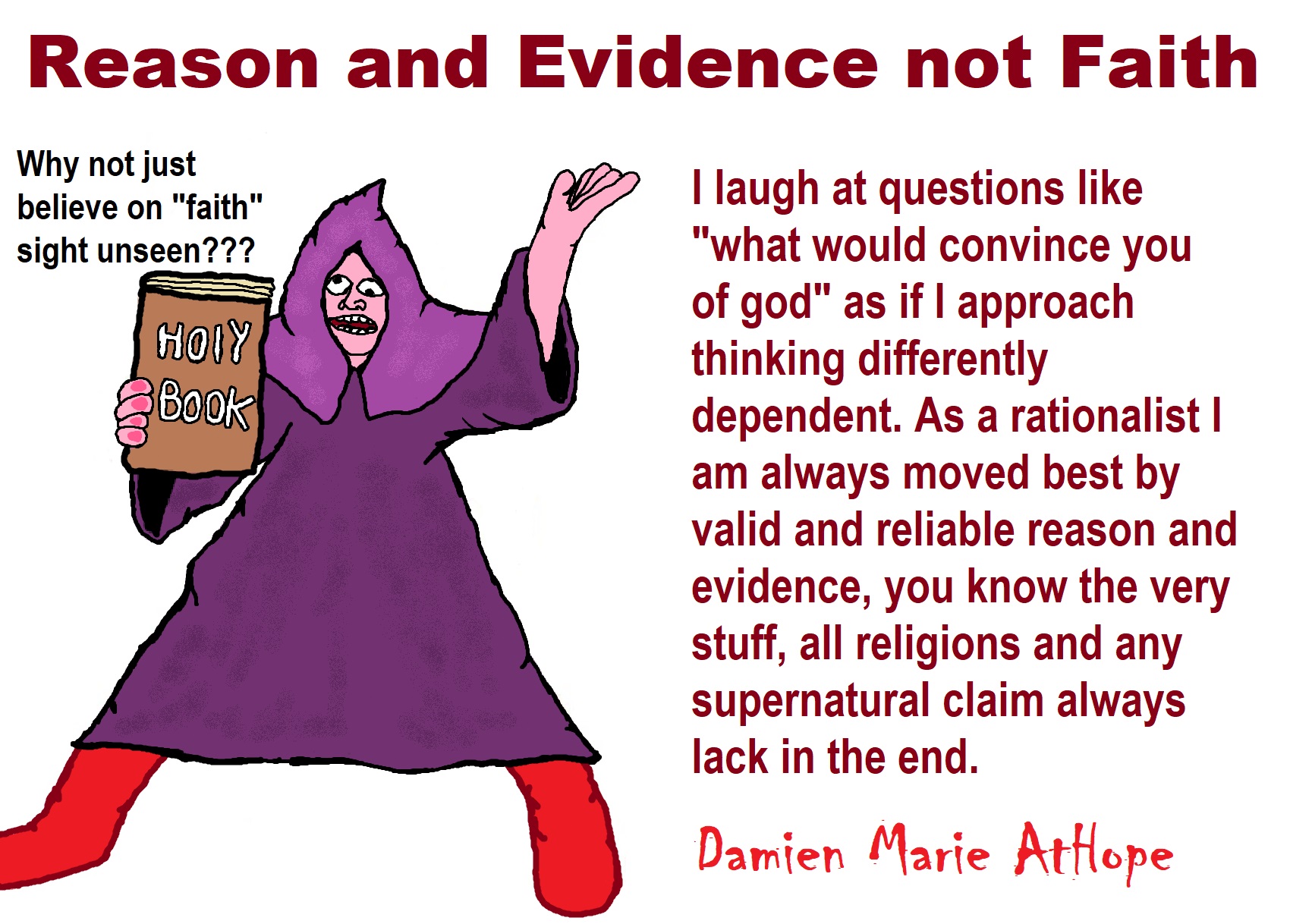
Deconstructing Pseudo-Morality with Axiology Understanding?
- I am an Axiological Atheist, with a Rationalist Persuasion, who Supports Anarcho-Humanism
- I am a caring firebrand axiological atheist, wishing to be hard on ideas but kind to people.
- Caring Firebrand Axiological Atheist, Antitheist, and Antireligionist as a Valuized Ethical Duty.
- Axiological Atheism Starts in Apatheism?
- Truth is a Value (axiological) Judgment.
- Axiological Atheism is Intellectualism
- Axiological Atheist Damien Marie AtHope interviews BABA BRINKMAN
- “Value Theory/Value Science” atheism: AXIOLOGICAL ATHEISM
- Is bible god ethical? & Would It Be Bad or Good if God Exists? (axiological “value theory” questions)
- Moral fear and Moral love (which together motivate my axiological ethics)?
- Axiological Dignity: “Value Consciousness vs Value-Blindness”
- Axiological/axiology (value theory/value science) Atheism?
- My Atheism: “Axiological Atheism”
- Axiological Atheist Interviews
- Axiological Atheism not Nihilist Atheism
- My quick definition of Axiology and Axiological Atheism?
- Applying Axiological Thinking
Get Behind Me With your Pseudo Religious-Morality
You look down on me without just cause, ranting your religious beliefs as if they have real value. However, your Pseudo Religious-Morals don’t even interest me, as if they have a real universal benefit to humanity, which they do not! So, yes, to you and your pseudo-moralistic thinking, I may express fallen morals. However, in this charge, I am proudly fallen, from such vile mental pollution as your pseudo-morality. And in so doing, I communicate respect and value for real morality indeed. But may I remind you, not only do I not need your fallen Pseudo Religious-Morals, I am demonstrably better off without them as I have TRUE reason uplifted universal-ethics, and that is something you don’t seem to demonstrate with any real accuracy, and for this, I look down on you with just cause. I hope I am always strong enough to put my morality at the forefront in all I do, so much so, that it is obvious in the ways I think and behave.
Axiological Morality Critique of Pseudo-Morality/Pseudomorality?
Real Morality vs. Pseudo Morality
“Real Morality vs. Pseudo Morality?”
+Morals (Personal Morality relating to a “self” morality): are not held by all in the same way since all are not held to Orthodox faith and though most start with good and bad or right and wrong values, which usually are personally, familially, socially or religiously give or in some way otherworldly defined, thus not universal.
+Ethics (Social Morality relating to a “others” morality): Ethics are not constrained by a given religion’s value systems to motivate its ideas of right and wrong instead it relies on universal truths found in universal principles of just human action. Ethics is set standers uses to personally engage with others and universal truths assist goals of universal ethical standards. Thus, ethics are general prosocial prescription we as morality aware beings in a rather universal way tend to have some awareness of and it is not just an awareness as in one who holds to ethics often get it applies to all peoples. Some may wish to devalue people but to do so is not really unethical, though often it can lead to unethical behavior. So what I am trying to highlight is how in the behavior that the ethics violation could occur as the internal attitude of devaluing others would only be a possible morals violation such as one who valued virtue and not getting it but failing by the persuasion of devaluing the life of other humans. This simple internal devaluing of humans, that they may be doing is vile. But ethics would not be involved until public behaviors with others, as such ethics is not so much a persuasion as an adherence to a standard(s) that should cover all thus it is highly applicable to utilize in environmental decision making.
Religions Promote Pseudo-Morality
- Axiology, Morality and the Dignity Being: “Human Entity”
- MORALITY: values, morals, and ethics
- Axiological Ethics not Pseudo Morality
- Morality: all subjective or all objective?
- Think there is no objective morality?
- I have questions for someone believing all morality is subjective
- Reason, Morality, and Emotions?
- Real Morality: Emotional Shame?
- Believe in Good, Humanist Morality?
- Natural Morality?
- Atheist Morality = Scientific Morality?
- Bible Morality and a Genocidal god of Watery Death?
- Axiological Atheism Morality Critique: of the bible god
- How Do I Gain a Morality Persuasion or Make a Change to it?
- Justice in the Workplace: morality/ethical dimensions
- No God: No evidence, No intelligence, and No goodness = Valid Atheism Conclusion
No God: No evidence, No intelligence, and No goodness = Valid Atheism Conclusion
- No evidence, to move past the Atheistic Null Hypothesis: There is no God/Gods (in inferential statistics, a Null Hypothesis generally assumed to be true until evidence indicates otherwise. Thus, a Null Hypothesis is a statistical hypothesis that there is no significant difference reached between the claim and the non-claim, as it is relatively provable/demonstratable in reality some way. “The god question” Null Hypothesis is set at as always at the negative standard: Thus, holding that there is no God/Gods, and as god faith is an assumption of the non-evidentiary wishful thinking non-reality of “mystery thing” found in all god talk, until it is demonstratable otherwise to change. Alternative hypothesis: There is a God (offered with no proof: what is a god and how can anyone say they know), therefore, results: Insufficient evidence to overturn the null hypothesis of no God/Gods.
- No intelligence, taking into account the reality of the world we do know with 99 Percent Of The Earth’s Species Are Extinct an intelligent design is ridiculous. Five Mass Extinctions Wiped out 99 Percent of Species that have ever existed on earth. Therefore like a child’s report card having an f they need to retake the class thus, profoundly unintelligent design.
- No goodness, assessed through ethically challenging the good god assumptions as seen in the reality of pain and other harm of which there are many to demonstrates either a god is not sufficiently good, not real or as I would assert, god if responsible for this world, would make it a moral monster ripe for the problem of evil and suffering (Argument from Evil). God would be responsible for all pain as life could easily be less painful and yet there is mass suffering. In fact, to me, every child born with diseases from birth scream out against a caring or loving god with the power to do otherwise. It could be different as there is Congenital insensitivity to pain (CIP), also known as congenital analgesia, in which a person cannot feel (and has never felt) physical pain.[1]
Disproof by logical contradiction
“A Logical Impossibility”
I am an Axiological (Theoretical and Normative VALUE Theorist philosopher) Atheist
Axiology and Value Theory?
Moral fear and Moral love (which together motivate my axiological ethics)?
Harm is often a violation of trust and a violation of expected trust makes bad things even worse like if I told you a child was killed, you would feel it was terrible but if I further told you it was the child’s doctor that murdered the child out of anger. You would be more angered as doctors are expected to care for people not harm them. And if you think that is bad what if I further told you the doctor who killed the child was her mother would you hold her even mone in contempt as mothers also are expected to care and not kill children, so a violation of trust is terrible and even makes things worse. Therefore, we can see why people that hold places of trust should never abuse them, and that we should hold them accountable if they do violate such trust by harming others. Morality first, that is morality should be at the forefront in all I do. I hope I am always strong enough to put my morality at the forefront in all I do, so much so, that it is obvious in the ways I think and behave. To better grasp, a naturalistic morality one should see the perspective of how there is a self-regulatory effect on the self-evaluative moral emotions, such as shame and guilt. Broadly conceived, self-regulation distinguishes between two types of motivation: approach/activation and avoidance/inhibition. one should conceptually understand the socialization dimensions (parental restrictiveness versus nurturance), associated emotions (anxiety versus empathy), and forms of morality (proscriptive versus prescriptive) that serve as precursors to each self-evaluative moral emotion.
Real Morality vs. Pseudo Morality
Religions Promote Pseudo-Morality
Think there is no objective morality?
True Morality Not the Golden Rule…
Axiological Atheism Morality Critique: of the bible god
Axiological Morality Critique of Pseudo-Morality/Pseudomorality?
True Morality summed up to me is largely the expression of axiological value judgments/assessments carried into an appropriate valueized action.
Why care? Because we are Dignity Beings.
*Axiological Dignity Being Theory*
“Dignity is an internal state of peace that comes with the recognition and acceptance of the value and vulnerability of all living things.” – Donna Hicks (2011). Dignity: The Essential Role It Plays in Resolving Conflict
I am inspired by philosophy, enlightened by archaeology, and grounded by science that religious claims, on the whole, along with their magical gods, are but Dogmatic-Propaganda, myths and lies. Kindness beats prayers every time, even if you think prayer works, you know kindness works. Think otherwise, do both without telling people and see which one they notice. Aspire to master the heavens but don’t forget about the ones in need still here on earth. You can be kind and never love but you cannot love and never be kind. Therefore, it is this generosity of humanity, we need the most of. So, if you can be kind, as in the end some of the best we can be to others is to exchange kindness. For too long now we have allowed the dark shadow of hate to cloud our minds, while we wait in silence as if pondering if there is a need to commiserate. For too long little has been done and we too often have been part of this dark clouded shame of hate. Simply, so many humans now but sadly one is still left asking, where is the humanity?
Why Ought We Care?
Because kindness is like chicken soup to the essence of who we are, by validating the safety needs of our dignity. When the valuing of dignity is followed, a deep respect for one’s self and others as dignity beings has become one’s path. When we can see with the eyes of love and kindness, how well we finally see and understand what a demonstrates of a mature being of dignity when we value the human rights of others, as we now see others in the world as fellow beings of dignity. We need to understand what should be honored in others as fellow dignity beings and the realization of the value involved in that. As well as strive to understand how an attack to/on a person’s “human rights” is an attack to/on the value and worth of a dignity being.
Yes, I want to see “you” that previous being of dignity worthy of high value and an honored moral weight to any violation of their self-ownership. And this dignity being with self-ownership rights is here before you seeking connection. what will you do, here you are in the question ever-present even if never said aloud, do you see me now or are you stuck in trying to evaluate my value and assess worth as a fellow being of dignity. A violation of one’s dignity (Which it the emotional, awareness, or the emotional detection of the world) as a dignity being can be quite harmful, simply we must see how it can create some physiological disturbance in the dignity being its done to. I am a mutualistic thinker and to me, we all are in this life together as fellow dignity beings.
Therefore, I want my life to be of a benefit to others in the world. We are natural evolutionary derived dignity beings, not supernatural magic derived soul/spirit beings. Stopping lying about who we are, as your made-up magic about reality which is forced causing a problem event (misunderstanding of axiological valuations) to the natural wonder of reality. What equals a dignity worth being, it is the being whose species has cognitive awareness and the expense of pain. To make another dignity being, feel pain, is to do an attack to their dignity as well as your own.
What equals a dignity worth being, it is the being whose species has cognitive awareness and the expense of pain. When I was younger I felt proud when I harmed those I did not like now I find it deserving even if doing it was seen as the only choice as I now see us for who we are valuable beings of dignity. I am not as worried about how I break the box you believe I need to fit as I am worried about the possibility of your confining hopes of hindering me with your limits, these life traps you have decided about and for me are as owning character attacks to my dignity’s needs which can be generalized as acceptance, understanding, and support.
As I see it now, how odd I find it to have prejudice or bigotry against other humans who are intact previous fellow beings of dignity, we too often get blinded by the external packaging that holds a being of dignity internally. What I am saying is, don’t judge by the outside, see the worth, and human value they have as a dignity being. Why is it easier to see what is wrong than what is right? Why do I struggle in speaking what my heart loves as thoroughly and as passionate as what I dislike or hate? When you say “an act of mercy” the thing that is being appealed to or for is the proposal of or for the human quality of dignity. May my lips be sweetened with words of encouragement and compassion. May my Heart stay warm in the arms kindness.
May my life be an expression of love to the world. Dignity arises in our emotional awareness depending on cognition. Our dignity is involved when you feel connected feelings with people, animals, plants, places, things, and ideas. Our dignity is involved when we feel an emotional bond “my family”, “my pet”, “my religion”, “my sport’s team” etc. Because of the core sensitivity of our dignity, we feel that when we connect, then we are also acknowledging, understanding, and supporting a perceived sense of dignity. Even if it’s not actually a dignity being in the case of plants, places, things, and ideas; and is rightly interacting with a dignity being in people and animals.
We are trying to project “dignity developing motivation” towards them somewhere near equally even though human and animals don’t have the same morality weight to them. I am anthropocentric (from Greek means “human being center”) as an Axiological Atheist. I see humans value as above all other life’s value. Some say well, we are animals so they disagree with my destination. But how do the facts play out? So, you don’t have any difference in value of life? Therefore, a bug is the same as a mouse, a mouse is the same as a dolphin, a dolphin is the same as a human, all to you have exactly the same value?
You fight to protect the rights of each of them equally? And all killing of any of them is the same crime murder? I know I am an animal but you also know that we do have the term humans which no other animal is classified. And we don’t take other animals to court as only humans and not any other animals are like us. We are also genetically connected to plants and stars and that still doesn’t remove the special class humans removed from all other animals. A society where you can kill a human as easily as a mosquito would simply just not work ethically to me and it should not to any reasonable person either.
If you think humans and animals are of equal value, are you obviously for stronger punishment for all animals to the level of humans? If so we need tougher laws against all animals including divorce and spousal or child support and we will jail any animal parent (deadbeat animal) who does not adequately as we have been avoiding this for too long and thankfully now that in the future the ideas about animals being equal we had to create a new animal police force and animal court system, not to mention are new animal jails as we will not accept such open child abuse and disregard for responsibilities? As we don’t want to treat animals as that would be unjust to some humans, but how does this even make sense?
To me, it doesn’t make sense as humans a different from all other animals even though some are similar in some ways. To further discuss my idea of *dignity developing motivation” can be seen in expressions like, I love you and I appreciate you. Or the behavior of living and appreciating. However, this is only true between higher cognitive aware beings as dignity and awareness of selfness is directly related to dignity awareness. The higher the dignity awareness the higher the moral weight of the dignity in the being’s dignity. What do you think are the best ways to cultivate dignity?
Well, to me, “dignity” is not a fixed thing and it feels honored or honoring others as well as help self-helping and other helping; like ones we love or those in need, just as our dignity is affected by the interactions with others. We can value our own dignity and we can and do grow this way, but as I see it because we are a social animals we can usually we cannot fully flourish with our dignity. Thus, dignity is emotionally needy for other dignity beings that is why I surmise at least a partially why we feel empathy and compassion or emotional bonds even with animals is a dignity awareness and response. Like when we say “my pet” cat one is acknowledging our increased personal and emotional connecting.
So, when we exchange, in experiences with a pet animal, what we have done is we raze their dignity. Our dignity flourishes with acceptance, understanding, and support. Our dignity withers with rejection, misunderstanding, and opposition. Dignity: is the emotional sensitivity of our sense of self or the emotional understanding about our sense of self. When you say, they have a right to what they believe, what I hear is you think I don’t have a right to comment on it. Dignity is the emotional sensitivity of our sense of self or the emotional understanding about our sense of self.
To me, when we say it’s wrong to kill a human, that person is appealing to our need to value the dignity of the person.’ The person with whom may possibly be killed has a life essence with an attached value and moral weight valuations. And moral weight,’ which is different depending on the value of the dignity being you are addressing understanding moral weight as a kind of liability, responsibility, or rights is actualized. So, it’s the dignity to which we are saying validates the right to life. But I believe all living things with cognitively awareness have a dignity.
As to me, dignity is the name I home to the emotional experience, emotional expression, emotional intelligence or sensitivity at the very core of our sense of self the more aware the hire that dignity value and thus worth. Dignity is often shredded similar to my thinking: “Moral, ethical, legal, and political discussions use the concept of dignity to express the idea that a being has an innate right to be valued, respected, and to receive ethical treatment. In the modern context dignity, can function as an extension of the Enlightenment-era concepts of inherent, inalienable rights. English-speakers often use the word “dignity” in prescriptive and cautionary ways: for example, in politics, it can be used to critique the treatment of oppressed and vulnerable groups and peoples, but it has also been applied to cultures and sub-cultures, to religious beliefs and ideals, to animals used for food or research, and to plants. “Dignity” also has descriptive meanings pertaining to human worth.
In general, the term has various functions and meanings depending on how the term is used and on the context.” Dignity, authenticity, and integrity are of the highest value to our experience, yet ones that we must define for ourselves. People of hurt and harm, you are not as free to attack other beings of dignity without any effect on you as you may think. So, I am sorry, not sorry that there is no such thing in general, as hurting or harming other beings of dignity without psychological destruction to the dignity being in us. This is an understanding that once done hunts and harm of other beings of dignity emotionally/psychologically hurts and harms your life as an acceptance needy dignity being, as we commonly experience moral discuss involuntary as on our deepest level as dignity beings. Disgust is deeply related to our sense of morality.
Babies & Morality?
“They believe babies are in fact born with an innate sense of morality, and while parents and society can help develop a belief system in babies, they don’t create one. A team of researchers at Yale University’s Infant Cognition Center, known as The Baby Lab, showed us just how they came to that conclusion.” Ref
Animals and Morality?
5 Animals With a Moral Compass Moreover, Animals can tell right from wrong: Scientists studying animal behavior believe they have growing evidence that species ranging from mice to primates are governed by moral codes of conduct in the same way as humans. Likewise, in the book: Wild Justice: The Moral Lives of Animals: Scientists have long counseled against interpreting animal behavior in terms of human emotions, warning that such anthropomorphizing limits our ability to understand animals as they really are. Yet what are we to make of a female gorilla in a German zoo who spent days mourning the death of her baby? Or a wild female elephant who cared for a younger one after she was injured by a rambunctious teenage male? Or a rat who refused to push a lever for food when he saw that doing so caused another rat to be shocked? Aren’t these clear signs that animals have recognizable emotions and moral intelligence? With Wild Justice Marc Bekoff and Jessica Pierce unequivocally answer yes. Marrying years of behavioral and cognitive research with compelling and moving anecdotes, Bekoff and Pierce reveal that animals exhibit a broad repertoire of moral behaviors, including fairness, empathy, trust, and reciprocity. Underlying these behaviors is a complex and nuanced range of emotions, backed by a high degree of intelligence and surprising behavioral flexibility. Animals, in short, are incredibly adept social beings, relying on rules of conduct to navigate intricate social networks that are essential to their survival. Ultimately, Bekoff and Pierce draw the astonishing conclusion that there is no moral gap between humans and other species: morality is an evolved trait that we unquestionably share with other social mammals.
Moral Naturalism (James Lenman)
While “moral naturalism” is sometimes used to refer to any approach to metaethics intended to cohere with naturalism in metaphysics more generally, the label is more usually reserved for naturalistic forms of moral realism according to which there are objective moral facts and properties and these moral facts and properties are natural facts and properties. Views of this kind appeal to many as combining the advantages of naturalism and realism. Ref
Moral fear and Moral love (which together motivate my axiological ethics)?
“Sometimes justice has to outweigh care and sometimes care has to outweigh justice.”
And one may ask or question how do you discern the appropriate morality course of action between what is ethically right? To me, it takes Axiology (i.e. value consciousness: value judgment analysis of ethical appropriateness do to assess value involved).
MORAL FEAR (fight or flight “justice perspective”):
To feel a kind of morality “anxiety” (ethical apprehension to potentially cause harm) about behaviors and their outcomes empathy (I feel you) or sympathy (I feel for you) about something moral that may be done, is being done, or that has been done, thus feeling of distress, apprehension or alarm caused by value driven emotional intelligence concern; moral/ethical anxiety to the possibility; chance (to do something as a moral thinker and an ethical actor) or dread; respect (to take the sensitivity of a personal moral choice that leads one to choose an ethical behavior(s) and grasping the moral weight of the actions involved and potential outcomes this engagement can or will likely create (using data from learning whether theoretical or practical to lessen the effect of an unpleasant choice as much as posable (morality development/awareness/goals/persuasion). “Moral Anxiety, improves us, while Social Anxiety kills. Some anxieties are indicators of healthy curiosity and strong moral fiber, while others are a source of severe stress. Knowing which is which can help you to navigate your personal, professional, and intellectual life more effectively.” Ref
Moral fear thus is a kind of morality “anxiety” that motivates a fascinating aspect of humanity, which is that we hold ourselves to high moral standards. With our values and emotional intelligence and moral development, we gain a developed prosocial persuasion thus “tend to self-impose rules on ourselves to protect society from the short-term temptations that might cause us to do things that would have a negative impact in the long-run.
For example, we might be tempted to harm a person who bothers us, but a society in which everyone gave in to the temptation to hurt those who made us angry would quickly devolve into chaos. And once we accept that emotion plays some role in complex decisions, it is important to figure out which emotions are influencing different kinds of choices. Therefore, when we make these moral judgments to an extent we are somewhat driven by our ability to reason about the consequences of the actions or are influenced by their emotions to or about the outcomes of the consequences of the actions.” https://www.psychologytoday.com/blog/ulterior-motives/201308/anxiety-and-moral-judgment
*ps. MORAL FEAR (fight or flight “consequentialist ethics/utilitarian ethics”) is roughly referring to the fight-or-flight response, also known as the acute stress response, refers to a physiological reaction that occurs in the presence of something that is terrifying, either mentally or physically. The fight-or-flight response (also called hyperarousal, or the acute stress response) is a physiological reaction that occurs in response to a perceived harmful event, attack, or threat to survival. An evolutionary psychology explanation is that early animals had to react to threatening stimuli quickly and did not have time to psychologically and physically prepare themselves. The fight or flight response provided them with the mechanisms to rapidly respond to threats against survival. This response is recognized as the first stage of the general adaptation syndrome that regulates stress responses among vertebrates and other organisms. The reaction begins in the amygdala, which triggers a neural response in the hypothalamus. The initial reaction is followed by activation of the pituitary gland and secretion of the hormone ACTH. The adrenal gland is activated almost simultaneously and releases the hormone epinephrine. The release of chemical messengers results in the production of the hormone cortisol, which increases blood pressure, blood sugar, and suppresses the immune system. The initial response and subsequent reactions are triggered in an effort to create a boost of energy. This boost of energy is activated by epinephrine binding to liver cells and the subsequent production of glucose. Additionally, the circulation of cortisol functions to turn fatty acids into available energy, which prepares muscles throughout the body for response. Catecholamine hormones, such as adrenaline (epinephrine) or noradrenaline (norepinephrine), facilitate immediate physical reactions associated with a preparation for violent muscular action and :
- Acceleration of heart and lung action
- Paling or flushing, or alternating between both
- Inhibition of stomach and upper-intestinal action to the point where digestion slows down or stops
- General effect on the sphincters of the body
- Constriction of blood vessels in many parts of the body
- Liberation of metabolic energy sources (particularly fat and glycogen) for muscular action
- Dilation of blood vessels for muscles
- Inhibition of the lacrimal gland (responsible for tear production) and salivation
- Dilation of pupil (mydriasis)
- Relaxation of bladder
- Inhibition of erection
- Auditory exclusion (loss of hearing)
- Tunnel vision (loss of peripheral vision)
- Disinhibition of spinal reflexes
- Shaking
The physiological changes that occur during the fight or flight response are activated in order to give the body increased strength and speed in anticipation of fighting or running. Some of the specific physiological changes and their functions include:
- Increased blood flow to the muscles activated by diverting blood flow from other parts of the body.
- Increased blood pressure, heart rate, blood sugars, and fats in order to supply the body with extra energy.
- The blood clotting function of the body speeds up in order to prevent excessive blood loss in the event of an injury sustained during the response.
- Increased muscle tension in order to provide the body with extra speed and strength. Ref, Ref
Here is a little on Consequentialist ethics and Utilitarian ethics
*Consequentialist ethics: involves a class of normative ethical theories holding that the consequences of one’s conduct are the ultimate basis for any judgment about the rightness or wrongness of that conduct. Thus, from a consequentialist standpoint, a morally right act (or omission from acting) is one that will produce a good outcome, or consequence. In an extreme form, the idea of consequentialism is commonly encapsulated in the saying, “the end justifies the means“, meaning that if a goal is morally important enough, any method of achieving it is acceptable. Consequentialism is usually contrasted with deontological ethics (or deontology), in that deontology, in which rules and moral duty are central, derives the rightness or wrongness of one’s conduct from the character of the behavior itself rather than the outcomes of the conduct. It is also contrasted with virtue ethics, which focuses on the character of the agent rather than on the nature or consequences of the act (or omission) itself, and pragmatic ethics which treats morality like science: advancing socially over the course of many lifetimes, such that any moral criterion is subject to revision. Consequentialist theories differ in how they define moral goods. Some argue that consequentialist and deontological theories are not necessarily mutually exclusive. For example, T. M. Scanlon advances the idea that human rights, which are commonly considered a “deontological” concept, can only be justified with reference to the consequences of having those rights. Similarly, Robert Nozick argues for a theory that is mostly consequentialist, but incorporates inviolable “side-constraints” which restrict the sort of actions agents are permitted to do. Ref
*Utilitarian ethics: involve an ethical theory which states that the best action is the one that maximizes utility. “Utility” is defined in various ways, usually in terms of the well-being of sentient entities. Jeremy Bentham, the founder of utilitarianism, described utility as the sum of all pleasure that results from an action, minus the suffering of anyone involved in the action. Utilitarianism is a version of consequentialism, which states that the consequences of any action are the only standard of right and wrong. Unlike other forms of consequentialism, such as egoism, utilitarianism considers the interests of all beings equally. Proponents of utilitarianism have disagreed on a number of points, such as whether actions should be chosen based on their likely results (act utilitarianism) or whether agents should conform to rules that maximize utility (rule utilitarianism). There is also disagreement as to whether total (total utilitarianism) or average (average utilitarianism) utility should be maximized. Though the seeds of the theory can be found in the hedonists Aristippus and Epicurus, who viewed happiness as the only good, the tradition of utilitarianism properly began with Bentham, and has included John Stuart Mill, Henry Sidgwick, R. M. Hare, David Braybrooke, and Peter Singer. It has been applied to social welfare economics, the crisis of global poverty, the ethics of raising animals for food, and the importance of avoiding existential risks to humanity. Because utilitarianism is not a single theory but a cluster of related theories that have been developed over two hundred years, criticisms can be made for different reasons and have different targets. Karl Marx, in Das Kapital, criticizes Bentham’s utilitarianism on the grounds that it does not appear to recognize that different people have different joys:
Not even excepting our philosopher, Christian Wolff, in no time and in no country has the most homespun commonplace ever strutted about in so self-satisfied a way. The principle of utility was no discovery of Bentham. He simply reproduced in his dull way what Helvétius and other Frenchmen had said with esprit in the 18th century. To know what is useful for a dog, one must study dog-nature. This nature itself is not to be deduced from the principle of utility. Applying this to man, he who would criticize all human acts, movements, relations, etc., by the principle of utility, must first deal with human nature in general, and then with human nature as modified in each historical epoch. Bentham makes short work of it. With the driest naivete he takes the modern shopkeeper, especially the English shopkeeper, as the normal man. Whatever is useful to this queer normal man, and to his world, is absolutely useful. This yard-measure, then, he applies to past, present, and future. The Christian religion, e.g., is “useful,” “because it forbids in the name of religion the same faults that the penal code condemns in the name of the law.” Artistic criticism is “harmful,” because it disturbs worthy people in their enjoyment of Martin Tupper, etc. With such rubbish has the brave fellow, with his motto, “nulla dies sine linea [no day without a line]”, piled up mountains of books.
An article in the American Journal for Economics has addressed the issue of Utilitarian ethics within the redistribution of wealth. The journal stated that taxation of the wealthy is the best way to make use of the disposable income they receive. This says that the money creates utility for the most people by funding government services. Many utilitarian philosophers, including Peter Singer and Toby Ord, argue that inhabitants of developed countries, in particular, have an obligation to help to end extreme poverty across the world, for example by regularly donating some of their income to charity. Peter Singer, for example, argues that donating some of one’s income to charity could help to save a life or cure somebody from a poverty-related illness, which is a much better use of the money as it brings someone in extreme poverty far more happiness than it would bring to oneself if one lived in relative comfort. However, Singer not only argues that one ought to donate a significant proportion of one’s income to charity, but also that this money should be directed to the most cost-effective charities, in order to bring about the greatest good for the greatest number, consistent with utilitarian thinking. Singer’s ideas have formed the basis of the modern effective altruist movement. ref
MORAL LOVE (tend and befriend “voice of care perspective”):
To me, this relates to care/caring ethics, which affirms the importance of caring motivation, emotion, and the body in moral deliberation, as well as reasoning from particulars.
This moral theory is known as “ the ethics of care” implies that there is moral significance in the fundamental elements of relationships and dependencies in human life. Normatively, care ethics seeks to maintain relationships by contextualizing and promoting the well-being of care-givers and care-receivers in a network of social relations. Most often defined as a practice or virtue rather than a theory as such, “care” involves maintaining the world of, and meeting the needs of, ourselves and others. It builds on the motivation to care for those who are dependent and vulnerable, and it is inspired by both memories of being cared for and the idealizations of self. Following in the sentimentalist tradition of moral theory, care ethics affirms the importance of caring motivation, emotion, and the body in moral deliberation, as well as reasoning from particulars. One of the original works of care ethics was Milton Mayeroff’s short book, On Caring, but the emergence of care ethics as a distinct moral theory is most often attributed to the works of psychologist Carol Gilligan and philosopher Nel Noddings in the mid-1980s. Though there are notable thinkers who express early strains of care ethics such as those that can be detected in the writings of feminist philosophers such as Mary Wollstonecraft, Catherine and Harriet Beecher, and Charlotte Perkins. Offering a general charged that traditional moral approaches contain a kinda of male bias, and asserted the “voice of care” as a legitimate alternative to the “justice perspective” of liberal human rights theory. Annette Baier, Virginia Held, Eva Feder Kittay, Sara Ruddick, and Joan Tronto are some of the most influential among many subsequent contributors to care ethics. Typically contrasted with deontological/Kantian and consequentialist/utilitarian ethics, is that of care ethics.
*ps. MORAL LOVE (tend and befriend “care ethics (ethics of care)/reciprocity (reciprocal altruism) ethics”) is similar to the fight or flight which is also only part of a bigger picture, according to Shelley Taylor, Ph.D., a psychology professor at the University of California, Los Angeles, and her colleagues. In the Psychological Review, as in evolutionary psychology, researchers describe how stress can elicit another behavioral pattern they call “tend and befriend”–especially in females. Tend-and-befriend is a behavior exhibited by some animals, including humans, in response to threat. It refers to protection of offspring (tending) and seeking out the social group for mutual defense (befriending), tend-and-befriend is theorized as having evolved as the typical female response to stress, just as the primary male response was fight-or-flight. This kind of gender determinism within the field is the subject of some controversy but I see it as to limited as well because we tend to use multiple strategies to further secure safety, depending of avalable resorces and if one regardless of gender persuasion is not able to either adequately defend themselves/or others (the fight part of fight or flight ) or is not able to either adequately flee a given threat (the flight part of fight or flight ) then other options such as The tend-and-befriend theoretical model was originally developed by Dr. Shelley E. Taylor and her research team at the University of California, Los Angeles and first described in a Psychological Review article published in the year 2000.
Here is a little on Care ethics and Reciprocal altruism
*Care ethics: is a normative ethical theory that holds interpersonal relationships and care or benevolence as a virtue as central to moral action. It is one of a cluster of normative ethical theories that were developed by feminists in the second half of the twentieth century. Here is a link to Feminist ethics. While consequentialist and deontological ethical theories emphasize universal standards and impartiality, ethics of care emphasize the importance of response. The shift in moral perspective is manifested by a change in the moral question from “what is just?” to “how to respond?”. Ethics of care criticize application of universal standards as “morally problematic since it breeds moral blindness or indifference.”
Some beliefs of the theory are basic:
- Persons are understood to have varying degrees of dependence and interdependence on one another. This is in contrast to deontological and consequentialist theories that tend to view persons as having independent interests and interactions.
- Those particularly vulnerable to one’s choices and their outcomes deserve extra consideration to be measured according to their vulnerability to one’s choices.
- It is necessary to attend to contextual details of situations in order to safeguard and promote the actual specific interests of those involved.
Care ethics contrasts with more well-known ethical models, such as consequentialist theories (e.g. utilitarianism) and deontological theories (e.g. Kantian ethics) in that it seeks to incorporate traditionally feminized virtues and values which, proponents of care ethics contend, are absent in such traditional models of ethics. While some feminists have criticized care-based ethics for reinforcing traditional stereotypes of a “good woman” others have embraced parts of this paradigm under the theoretical concept of care-focused feminism. Care-focused feminism is a branch of feminist thought, informed primarily by ethics of care as developed by Carol Gilligan and Nel Noddings. This body of theory is critical of how caring is socially engendered to women and consequently devalued. “Care-focused feminists regard women’s capacity for care as a human strength” which can and should be taught to and expected of men as well as women. Noddings proposes that ethical caring has the potential to be a more concrete evaluative model of moral dilemma, than an ethic of justice. Noddings’ care-focused feminism requires practical application of relational ethics, predicated on an ethic of care. Ethics of care is also a basis for care-focused feminist theorizing on maternal ethics. Critical of how society engenders caring labor, theorists Sara Ruddick, Virginia Held, and Eva Feder Kittay suggest caring should be performed and caregivers valued in both public and private spheres. Their theories recognize caring as an ethically relevant issue. This proposed paradigm shift in ethics encourages that an ethic of caring be the social responsibility of both men and women. Joan Tronto argues that the definition of the term “ethic of care” is ambiguous due in part to the lack of a central role it plays in moral theory. She argues that considering moral philosophy is engaged with human goodness, then care would appear to assume a significant role in this type of philosophy. However, this is not the case and Tronto further stresses the association between care and “naturalness”. The latter term refers to the socially and culturally constructed gender roles where care is mainly assumed to be the role of the woman. As such, care loses the power to take a central role in moral theory. Tronto states there are four ethical elements of care:
- Attentiveness
Attentiveness is crucial to the ethics of care because care requires a recognition of others’ needs in order to respond to them. The question which arises is the distinction between ignorance and inattentiveness. Tronto poses this question as such, “But when is ignorance simply ignorance, and when is it inattentiveness”? - Responsibility
In order to care, we must take it upon ourselves, thus responsibility. The problem associated with this second ethical element of responsibility is the question of obligation. Obligation is often, if not already, tied to pre-established societal and cultural norms and roles. Tronto makes the effort to differentiate the terms “responsibility” and “obligation” with regards to the ethic of care. Responsibility is ambiguous, whereas obligation refers to situations where action or reaction is due, such as the case of a legal contract. This ambiguity allows for ebb and flow in and between class structures and gender roles, and to other socially constructed roles that would bind responsibility to those only befitting of those roles. - Competence
To provide care also means competency. One cannot simply acknowledge the need to care, accept the responsibility, but not follow through with enough adequacy – as such action would result in the need of care not being met. - Responsiveness
This refers to the “responsiveness of the care receiver to the care”. Tronto states, “Responsiveness signals an important moral problem within care: by its nature, care is concerned with conditions of vulnerability and inequality”. She further argues responsiveness does not equal reciprocity. Rather, it is another method to understand vulnerability and inequality by understanding what has been expressed by those in the vulnerable position, as opposed to re-imagining oneself in a similar situation. Ref
Reciprocal altruism: (the evolution of cooperation)is a social interaction phenomenon where an individual makes sacrifices for another individual in expectation of similar treatment in the future. Originally introduced as a concept by biologist Robert Trivers, reciprocal altruism explains how altruistic behavior and morality can arise from evolutionary causes, as evolution selects for the best possible game theory results. If the benefit is higher than the initial cost, then multiple reciprocal interactions can actually out-compete more “greedy” forms of relationships, thus providing an evolutionary incentive for altruistic behavior. At the same time (and in opposition to unlimited altruism), reciprocity ensures that cheaters are also harmed when they choose to do so and are gradually made less fit as a result of their own behavior. Modern ethnology seems to support at least part of this hypothesis, as many societies on all continents have developed highly complex forms of gift economy where gifts are given with no immediately obvious material return, but the implicit societal expectation of “repayment” in gift form at some later point in time. Amazingly, those societies work. The custom of giving gifts for birthdays in the West may be seen as a remnant of this. It’s not uncommon for someone to engage in this behavior with the object of their affection, i.e. being nice to them with the expectation of a sexual relationship. Since a lot of these situations tend to involve lonely, single straight men, the common term for this is “Nice Guy” — in other words, the suitor’s claim “but I’m a nice guy…” translates to “I went through all the motions and she still won’t sleep with me.” As a general rule, this is not an effective strategy, and often even drifts into stalking behavior. Women who engage in the same behavior do not get as much attention but are still known (naturally) as Nice Girls. Either way, such people are seldom actually nice, and frequently come off as manipulative and bitter without realizing it. The fallacy lies in their equating sexual relationship with being nice – if their expectation of tit for tat was actually equal, aka being nice for being nice and being honest for being honest (which they, coming into relationship with entirely different expectations than they communicate, fail at), they wouldn’t face such a problem. Ref
I see my Axiological driven morality to involve an enmeshed union of both:
fight or flight “justice perspective” and a tend and befriend “voice of care perspective”
Helping is Helpful: Valuing, Motivating, Supporting
How to Grow in Our Positive Outcomes: Gratitude, Empathy, and Kindness
We can become a more quality person by actively being aware and developing a gratitude for life, which supports as well as grows our feelings of empathy, that then motivates the behavior of kindness.
Universal ethics?
There are several ethical standards that are considered to be self-evident and seem to apply to all people throughout all of history, regardless of cultural, political, social, or economic context. The non-aggression principle, which prohibits aggression, or the initiation of force or violence against another person, is a universal ethical principle. My Examples of aggression include murder, rape, kidnapping, assault, robbery, theft, and vandalism. On the other hand, the commission of any of such acts in response to aggression does not necessarily violate universal ethics. There are obvious reasons why universal ethics are beneficial to society. For example, if people were allowed to kill or steal, this would lead to widespread chaos and violence and would be detrimental to the well-being of society. Most people agree that it’s better to prohibit aggression than to allow everyone to commit it. Therefore, aggression is intrinsically immoral. Although nearly all societies have laws prohibiting aggression, this does not mean that universal ethics are necessarily reflected by that society’s government or its dominant ideology. Universal ethics does not mean the imposition of one set of morals by one group on another. It means a shared way or means of reaching a consensus on norms and values that also accepts diversity. A shared understanding of what is right and what is wrong. In any circumstance or situation, we can start by examining the present state of affairs. This should be done with the aim of gaining an understanding of other cultural differences, history, and tradition, remembering that an explanation is not necessarily a justification. Next, what is the minimum that is acceptable? There has to be an acceptance that some disagreements cannot be resolved at that time. The aim is to change the present situation for the better. Once an acceptable minimum is reached, it is possible to work towards an eventual ideal state. We are all one community and we are all responsible for upholding human rights for each other. More than ever there is a need for agreement on the existence of universally held values and the content of those values. It may prove to be impossible to find one set of universal ethical principles that apply to all cultures, philosophies, faiths and professions but the destination is only part of the journey. The value lies in the search for principles that can be shared by all and can underpin the framework for global dialogue on ethical issues. A universal moral code might be a set of underlying dispositions we are all born with. Or it might be a set of explicit norms and values humans might one day universally accept. But a more important sense of ‘universal moral code’ is of a set of moral values that is universally valid, whether or not it is inscribed in our brains, or accepted by people. Of course, that is a very controversial idea. If there is such a universal moral code, then we have an imperative to try to discover it, and to make it universally accepted (to make it a moral code in the descriptive sense). But this requires thinking hard about ethics, not looking for some code that might or might not be written into our brains. Ref Ref Ref
1.Values (morality motivations): are a amalgam of personal, family, local or extended group environmental, religious and/or cultural content etc. we are what we eat we are the knowledge we consume and the ideas we are sounded by. Values to me thus are self driven ideals others influenced. I like to think myself out of the matrix though if I would have grown up in china would I not be a different me. Born rich and loved as a child be different or adopted be Angelina Jolie be forever changed. Or the love child of Jeffry Dahmer or Mahatma Gondi would I still be the same me with the same values? I think not. Values are not fixed they change throughout one’s lifetime they can be absolute or relative, the assumption of which can be the basis for any sort of chosen action. Thus, a value system is a set of consistent values and measures one chooses because of their connectedness to chosen ideals. Values to me can be a foundation upon which other thinking streams and measures of ideal integrity are based. Those values which are not physiologically determined and normally considered objective, such as a desire to avoid physical pain, seek pleasure, etc., are considered subjective, vary across individuals and cultures and are in many ways aligned with belief and belief systems only truth to a set of people.
2.Morals (personal morality): are not held by all in the same way since all are not held to Orthodox faith and though most start with good and bad or right and wrong values, which usually are personally, familially, socially or religiously give or in some way otherworldly defined, thus not universal.
3.Ethics (public morality): Ethics are not constrained by a given religion’s value systems to motivate its ideas of right and wrong instead it relies on universal truths found in universal principles of just human action. Ethics is set standers uses to personally engage with others and universal truths assist goals of universal ethics standards. Thus, ethics are general prosocial prescription we as morality aware beings in a rather universal way tend to have some awareness of and it is not just an awareness as in one who holds to ethics often get it applies to all peoples. Some may wish to devalue people but to do so is not really unethical, though often it can lead to unethical behavior. So what I am trying to highlight is how in the behaviour that the ethics violation could occur as the internal attitude of devaluing others would only be a possible morals violation such as one who valued virtue and not getting it but failing by the persuasion of devaluing the life of other humans. This simple internal devaluing of humans, that they may be doing is vile. But ethics would not be involved until public behaviors with others, as such ethics is not so much a persuasion as an adherence to a standard(s) that should cover all thus it is highly applicable to utilize in environmental decision making.
In general I am a Universal Ethicist?
But What Good is a Set of Principles?
There are many tools for decision making, but few (secular) guides to indicate when situations might have an ethical implication. Yet this awareness is a crucial first step before decisions are made. Recognizing the moral context of a situation must precede any attempt to resolve it. Otherwise, what’s to resolve? Ethical dilemmas rarely present themselves as such. They usually pass us by before we know it or develop so gradually that we can only recognize them in hindsight – a little like noticing the snake after you’ve been bitten. But what are the signs that a snake might be present? An ethical framework is like a ‘snake detector’. I offer the following principles as landmarks – generic indicators to be used as compelling guides for an active conscience. They are NOT absolute rules or values. They are more like a rough measurement where an exact one is not possible. They often conflict with each other in practice, and some will trump others under certain circumstances. But as principles that need to be considered, they appear constant. These principles are compatible with the argument that we should simply follow our intuition and rely on the ‘inner voice’. However, that voice is not always audible, and today’s society presents a wide range of complex circumstances that require more guidance than simply ‘concern for others’ or ‘does it feel right?’ And so these principles are offered effectively as a more detailed reference. In a sense, the principles are outcomes of the mother of all principles – unconditional love and compassion – which appears in virtually all faiths, and is expressed here as ‘concern for the well-being of others’. (This principle is at the heart of the stakeholder model of ethics, i.e. what is my impact on others?) At first glance, they will appear obvious and perhaps trite or simplistic. Keep in mind that they are meant to be practical rather than groundbreaking, and that many people have found them useful in the absence of other guides.
“Universal ethics: there are several ethical standards that are considered to be self-evident, and seem to apply to all people throughout all of history, regardless of cultural, political, social, or economic context. The non-aggression principle, which prohibits aggression, or the initiation of force or violence against another person, is a universal ethical principle. Examples of aggression include murder, rape, kidnapping, assault, robbery, theft, and vandalism. On the other hand, the commission of any of such acts in response to aggression does not necessarily violate universal ethics. There are obvious reasons why universal ethics are beneficial to society. For example, if people were allowed to kill or steal, this would lead to widespread chaos and violence, and would be detrimental to the well-being of society. Most people agree that it’s better to prohibit aggression than to allow everyone to commit it. Therefore, aggression is intrinsically immoral. Although nearly all societies have laws prohibiting aggression, this does not mean that universal ethics are necessarily reflected by that society’s government or its dominant ideology. In ethics, a ‘universal code of ethics’ is a system of ethics that can apply to every sentient being.” Ref
Anarcho-Humanism, to me, is atheistic humanism with an unconditional social awareness:
Anarcho (anarchism): “No Gods – No Masters”
Humanism: “No Harm – Do Good”
Rationalism, Freethinker, Humanism & Secular humanism?
My core definition of humanism is that humans can solve human problems by human means. I am not saying other things can’t or shouldn’t be added to it but to me a definition of humanism must always contain something coherent to such a thinking or not contradict such as I have offered. Thus, why it is appropriate to say “good without god” when one is a humanist.
Confusions in Atheism and Humanism
Categories and Versions of Humanism
Believe in Good, Humanist Morality?
If one states they are a humanist and they believe in good, are they for or against a form of axiology or formal axiology? Axiology is the philosophical study of goodness, or value, in the widest sense of these terms. It may be used as the collective term for ethics and aesthetics—philosophical fields that depend crucially on notions of value—or the foundation for these fields, and thus similar to value theory and meta-ethics. The word “axiology” (Greek: axios = good, worth, or value; logos = “science”) means “study of good”, “study of worth ” or “study of value.” The axiologists sought to characterize the notion of value in general, of which moral value is only one species. They argue (with notable differences between them), that goodness does not exclusively derive from the will, but exists in objective hierarchies. Formal axiology, the attempt to lay out principles regarding value with mathematical rigor, is exemplified by Robert S. Hartman’s Science of Value. The fundamental principle of Hartman’s Science of Value, functions as an axiom, and can be stated in symbolic logic, is that a thing is good insofar as it exemplifies its concept. To put it another way, “a thing is good if it has all its descriptive properties.” This means, according to Hartman, that the good thing has a name, that the name has a meaning defined by a set of properties, and that the thing possesses all of the properties in the set. A thing is bad if it does not fulfill its description. If it doesn’t fulfill its definition it is terrible (awful, miserable.) A car, by definition, has brakes. A car which accelerates when the brakes are applied is an awful car, since a car by definition must have brakes. A horse, if we called it a car, would be an even worse car, with fewer of the properties of a car. The name we put on things is very important: it sets the norm for how we judge them. If one states they are a humanist, are they for or against a form of universal or realism morality? The 1948 Universal Declaration of Human Rights of the United Nations can be seen as an example of global efforts to bring a universalist, equal and common moral justice to all people, and Moral Universalism is, at least in part, the basis for modern human rights, and an integral part of any Humanist philosophy. Human rights which are commonly considered a “deontological” concept, sometimes described as “duty-” or “obligation-” or “rule-” based ethics, because rules “bind you to your duty.” Which T. M. Scanlon advances the idea that human rights, can only be justified with reference to the consequences of having those rights. Secular morality is the aspect of philosophy that deals with morality outside of religious traditions. Modern examples include humanism, freethinking, and most versions of consequentialism. Consequentialism is the class of normative ethical theories holding that the consequences of one’s conduct are the ultimate basis for any judgment about the rightness or wrongness of that conduct. Thus, from a consequentialist standpoint, a morally right act (or omission from acting) is one that will produce a good outcome, or consequence. Consequentialist theories differ in how they define moral goods. Some argue that consequentialist theories are not necessarily mutually exclusive. For example, Robert Nozick argues for a theory that is mostly consequentialist, but incorporates inviolable “side-constraints” which restrict the sort of actions agents are permitted to do. Consequentialists can and do differ widely in terms of specifying the Good. Some consequentialists are monists about the Good. Utilitarians, for example, identify the Good with pleasure, happiness, desire satisfaction, or “welfare” in some other sense. Other consequentialists are pluralists regarding the Good. Some of such pluralists believe that how the Good is distributed among persons (or all sentient beings) is itself partly constitutive of the Good, whereas conventional utilitarians merely add or average each person’s share of the Good to achieve the Good’s maximization. Moreover, there are some consequentialists who hold that the doing or refraining from doing, of certain kinds of acts are themselves intrinsically valuable states of affairs constitutive of the Good. An example of this is the positing of rights not being violated, or duties being kept, as part of the Good to be maximized—the so-called “utilitarianism of rights”. None of these pluralist positions erase the difference between consequentialism and deontology. For the essence of consequentialism is still present in such positions: an action would be right only insofar as it maximizes these Good-making states of affairs being caused to exist. However much consequentialists differ about what the Good consists in, they all agree that the morally right choices are those that increase (either directly or indirectly) the Good. Moreover, consequentialists generally agree that the Good is “agent-neutral”. That is, valuable states of affairs are states of affairs that all agents have reason to achieve without regard to whether such states of affairs are achieved through the exercise of one’s own agency or not. “Consequentialism”, as described by Peter Singer, “start not with moral rules, but with goals. They assess actions by the extent to which they further those goals.” Consequentialism contains in itself no explanation for why pleasure or utility are morally good, or why consequences should matter to morality at all. Nor does consequentialism/deontology make any claims about how we know moral facts (if there are any). That is a meta-ethical question, so the question ‘how do we know that it is wrong to kill?’ is not a normative but a meta-ethical question. Some consequentialists and deontologists are also moral realists. Some are not. Moral Realism a similar position to universal morality, that certain acts are objectively right or wrong, independent of human opinion. that there exist such things as moral facts and moral values, and that these are objective and independent of our perception of them or our beliefs, feelings or other attitudes towards them. Therefore, moral judgments describe moral facts, which are as certain in their own way as mathematical facts. It is a cognitivist view in that it holds that ethical sentences express valid propositions (and are therefore “truth-apt” i.e. they are able to be true or false), and that they describe the state of the real world. Moral Realism has the advantage of purportedly allowing the ordinary rules of logic to be applied straightforwardly to moral statements, (so that we can say, for example, that a moral belief is false or unjustified or contradictory in the same way we would about a factual belief). It also allows for the resolution of moral disagreements, because if two moral beliefs contradict one another, Moral Realism (unlike some other meta-ethical systems) says that they cannot both be right and so there should be some way of resolving the situation. Two main variants of moral realism are: Ethical Naturalism and Ethical Non-Naturalism.
Ethical Naturalism: holds that there are objective moral properties of which we have empirical knowledge, but that these properties are reducible to entirely non-ethical properties. It assumes cognitivism (the view that ethical sentences express propositions and can therefore be true or false), and that the meanings of these ethical sentences can be expressed as natural properties without the use of ethical terms.
Ethical Non-Naturalism: holds that ethical statements express propositions (in that sense it is also cognitivist) that cannot be reduced to non-ethical statements (e.g. “goodness” is indefinable in that it cannot be defined in any other terms). G. E. Moore claimed that a naturalistic fallacy is committed by any attempt to prove a claim about ethics by appealing to a definition in terms of one or more natural properties (e.g. “good” cannot be defined in terms of “pleasant”, “more evolved”, “desired”, etc). Ethical Intuitionism is a variant of Ethical Non-Naturalism which claims that we sometimes have intuitive awareness of moral properties or of moral truths.
Critics have argued that, while Moral Realism may be able to explain how to resolve moral conflicts, it cannot explain how these conflicts arose in the first place. Others have argued Moral Realism posits a kind of “moral fact” which is non-material and unobservable (in the way as objective material facts are observable), and therefore not accessible to the scientific method. Some philosophers who only believe in the physical world and don’t believe in anything immaterial say that they are also moral realists, but when they describes the type of morality that they believe in, often what they are talking about is the moral beliefs that people have acquired through evolution, which is called evolutionary moral realism. This includes the human instinct to care for the well being of others in one’s own group and the instinct to hold others accountable for transgressions against members of the group. A physicalist/materialist understanding of morality is therefore purely descriptive of human nature within a deterministic system. The physicalist/materialist conception of morality differs from normative moral realism, in which one believes that things ought be a certain way or that people should act in a certain way because such states of affairs or actions would be better, not purely as a function of anything physical such as the instincts people have evolved to have, but at least partially for reasons that ultimately transcend the physical world. For example, if someone believes that oppressing others is always wrong even though humans have an instinctual predisposition to favor their own group over others, and this person does not otherwise explain how this belief is descriptive of something in the physical world, then this implies that this person believes in normative morality. A similar concept to normative ethics is prescriptive ethics, which are those that are supposed to logically commit someone to act a certain way. For example, the normative statement “Murder is wrong” can be restated as “Do not murder”, which is prescriptive. This is similar to how doctors can prescribe medications for one to use. Essentially, prescriptive moral statements are prescribed to people in order for them to act morally. Normative statements simply state the relation a certain state of affairs has to rightness or wrongness without telling anyone how to act. The distinction between descriptive and normative/prescriptive morality is important to understand. One study found that 56% of professional philosophers accept or lean towards moral realism and 28%: anti-realism. Cognitive psychologist Steven Pinker has argued that the game theoretic advantages of ethical behavior support the idea that morality is “out there” in a certain sense (as part of the evolutionary fitness landscape). Journalist Robert Wright has similarly argued that natural selection moves sentient species closer to moral truth as time goes on. Writer Sam Harris has also argued that ethics could be objectively grounded in an understanding of neuroscience. He has admitted to being committed to some form of moral realism (viz. moral claims can really be true or false) and some form of consequentialism (viz. the rightness of an act depends on how it affects the well-being of conscious creatures). Being a moral anti-realist is compatible with having, and following, a moral theory: you just think you have reasons to be moral which are not based on mind-independent facts. For example, you might think convention gives you reason to be moral, where conventionalism is traditionally described as a form of non-realism. see: link A delineation of moral realism into a minimal form, a moderate form, and robust form has been put forward in the literature. The robust model of moral realism commits moral realists to three theses:
The semantic thesis: The primary semantic role of moral predicates (such as “right” and “wrong”) is to refer to moral properties (such as rightness and wrongness), so that moral statements (such as “honesty is good” and “slavery is unjust”) purport to represent moral facts, and express propositions that are true or false (or approximately true, largely false, and so on).
The alethic thesis: Some moral propositions are in fact true.
The metaphysical thesis: Moral propositions are true when actions and other objects of moral assessment have the relevant moral properties (so that the relevant moral facts obtain), where these facts and properties are robust: their metaphysical status, whatever it is, is not relevantly different from that of (certain types of) ordinary non-moral facts and properties.
The minimal model, i.e. moral universalism, leaves off the metaphysical thesis, treating it as matter of contention among moral realists (as opposed to between moral realists and moral anti-realists). This dispute is not insignificant, as acceptance or rejection of the metaphysical thesis is taken by those employing the robust model as the key difference between moral realism and moral anti-realism. Moral universalism (also called moral objectivism or universal morality) is the meta-ethical position that some system of ethics, or a universal ethic, applies universally, that is, for “all similarly situated individuals”, regardless of culture, race, sex, religion, nationality, sexual orientation, or any other distinguishing feature. Not all forms of moral universalism are absolutist, nor are they necessarily value monist; many forms of universalism, such as utilitarianism, are non-absolutist, and some forms may be value pluralist. A moral theory must be able to solve and thus to be on solid philosophical grounds:
The ontological problem: an adequate theory must account for ethics without assuming the existence of anything that does not actually exist.
The epistemological problem: if we have knowledge of right and wrong, an adequate theory must explain how we acquire such knowledge.
The experience problem: An adequate theory about ethics must account for the phenomenology of moral experience.
The supervenience problem: An adequate theory must be consistent with the supervenient character of evaluative concepts.
The motivation problem: an adequate theory must account for the internal connection between moral belief and motivation (or if there is no such connection, it must offer an alternative account of how morality guides action).
The reason problem: An adequate theory must account for the place of reason in ethics.
The disagreement problem: An adequate theory must explain the nature of ethical disagreement.
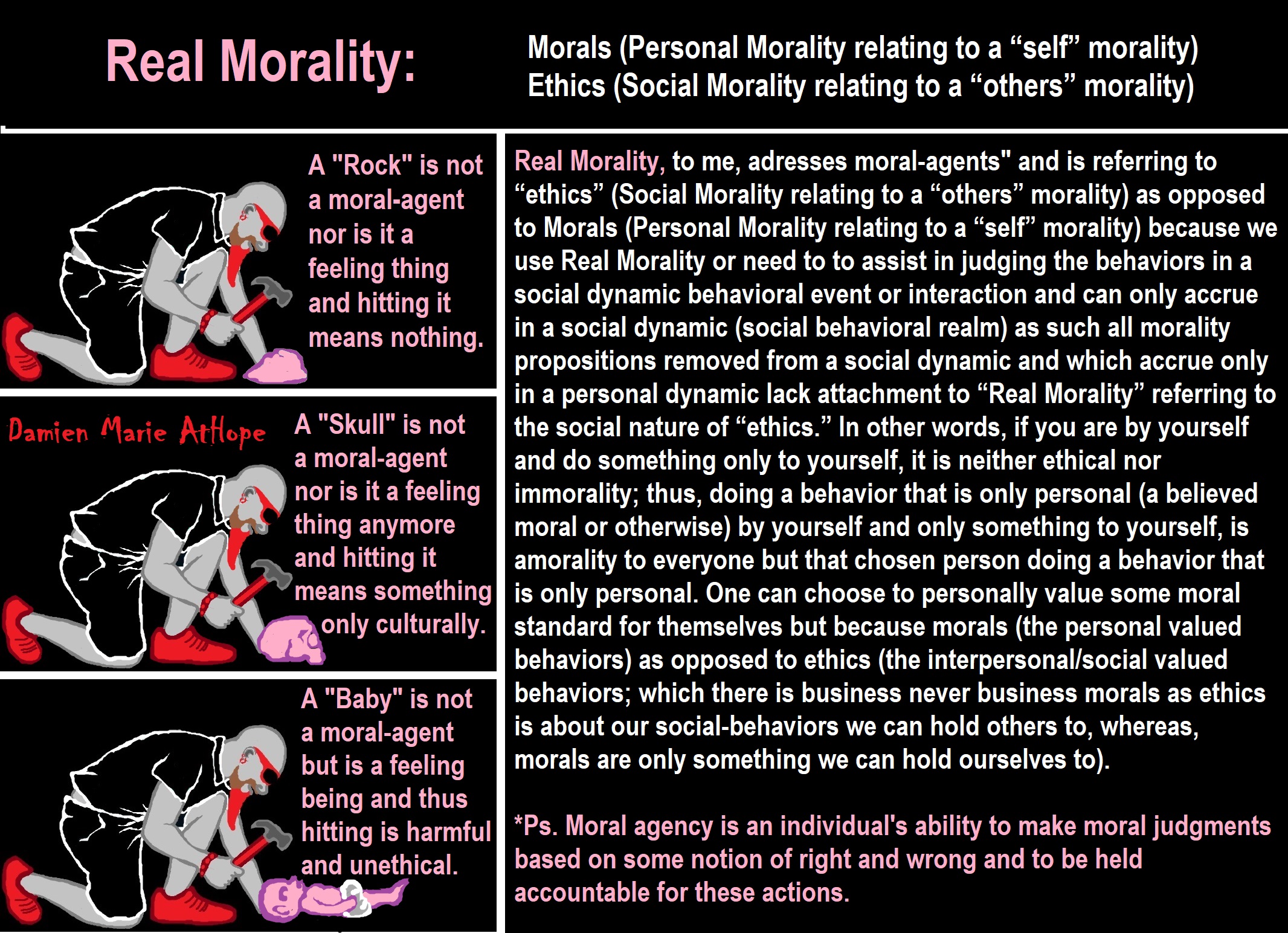

“Theists, there has to be a god, as something can not come from nothing.”
Well, thus something (unknown) happened and then there was something. This does not tell us what the something that may have been involved with something coming from nothing. A supposed first cause, thus something (unknown) happened and then there was something is not an open invitation to claim it as known, neither is it justified to call or label such an unknown as anything, especially an unsubstantiated magical thinking belief born of mythology and religious storytelling.

While hallucinogens are associated with shamanism, it is alcohol that is associated with paganism.
The Atheist-Humanist-Leftist Revolutionaries Shows in the prehistory series:
Show two: Pre-animism 300,000 years old and animism 100,000 years old: related to “Anarchism and Socialism”
Show tree: Totemism 50,000 years old: related to “Anarchism and Socialism”
Show four: Shamanism 30,000 years old: related to “Anarchism and Socialism”
Show five: Paganism 12,000 years old: related to “Anarchism and Socialism”
Show six: Emergence of hierarchy, sexism, slavery, and the new male god dominance: Paganism 7,000-5,000 years old: related to “Anarchism and Socialism” (Capitalism) (World War 0) Elite and their slaves!
Prehistory: related to “Anarchism and Socialism” the division of labor, power, rights, and recourses: VIDEO
Pre-animism 300,000 years old and animism 100,000 years old: related to “Anarchism and Socialism”: VIDEO
Totemism 50,000 years old: related to “Anarchism and Socialism”: VIDEO
Shamanism 30,000 years old: related to “Anarchism and Socialism”: VIDEO
Paganism 12,000 years old: related to “Anarchism and Socialism” (Pre-Capitalism): VIDEO
Paganism 7,000-5,000 years old: related to “Anarchism and Socialism” (Capitalism) (World War 0) Elite and their slaves: VIEDO
Paganism 5,000 years old: progressed organized religion and the state: related to “Anarchism and Socialism” (Kings and the Rise of the State): VIEDO
Paganism 4,000 years old: related to “Anarchism and Socialism” (First Moralistic gods, then the Origin time of Monotheism): VIEDO
I do not hate simply because I challenge and expose myths or lies any more than others being thought of as loving simply because of the protection and hiding from challenge their favored myths or lies.
The truth is best championed in the sunlight of challenge.
An archaeologist once said to me “Damien religion and culture are very different”
My response, So are you saying that was always that way, such as would you say Native Americans’ cultures are separate from their religions? And do you think it always was the way you believe?
I had said that religion was a cultural product. That is still how I see it and there are other archaeologists that think close to me as well. Gods too are the myths of cultures that did not understand science or the world around them, seeing magic/supernatural everywhere.
I personally think there is a goddess and not enough evidence to support a male god at Çatalhöyük but if there was both a male and female god and goddess then I know the kind of gods they were like Proto-Indo-European mythology.
This series idea was addressed in, Anarchist Teaching as Free Public Education or Free Education in the Public: VIDEO
Our 12 video series: Organized Oppression: Mesopotamian State Force and the Politics of power (9,000-4,000 years ago), is adapted from: The Complete and Concise History of the Sumerians and Early Bronze Age Mesopotamia (7000-2000 BC): https://www.youtube.com/watch?v=szFjxmY7jQA by “History with Cy“
Show #1: Mesopotamian State Force and the Politics of Power (Samarra, Halaf, Ubaid)
Show #2: Mesopotamian State Force and the Politics of Power
Show #3: Mesopotamian State Force and the Politics of Power (Uruk and the First Cities)
Show #4: Mesopotamian State Force and the Politics of Power (First Kings)
Show #5: Mesopotamian State Force and the Politics of Power (Early Dynastic Period)
Show #6: Mesopotamian State Force and the Politics of Power
Show #7: Mesopotamian State Force and the Politics of Power (Sargon and Akkadian Rule)
Show #9: Mesopotamian State Force and the Politics of Power (Gudea of Lagash and Utu-hegal)
Show #12: Mesopotamian State Force and the Politics of Power (Aftermath and Legacy of Sumer)

The “Atheist-Humanist-Leftist Revolutionaries”
Cory Johnston ☭ Ⓐ Atheist Leftist @Skepticallefty & I (Damien Marie AtHope) @AthopeMarie (my YouTube & related blog) are working jointly in atheist, antitheist, antireligionist, antifascist, anarchist, socialist, and humanist endeavors in our videos together, generally, every other Saturday.
Why Does Power Bring Responsibility?
Think, how often is it the powerless that start wars, oppress others, or commit genocide? So, I guess the question is to us all, to ask, how can power not carry responsibility in a humanity concept? I know I see the deep ethical responsibility that if there is power their must be a humanistic responsibility of ethical and empathic stewardship of that power. Will I be brave enough to be kind? Will I possess enough courage to be compassionate? Will my valor reach its height of empathy? I as everyone, earns our justified respect by our actions, that are good, ethical, just, protecting, and kind. Do I have enough self-respect to put my love for humanity’s flushing, over being brought down by some of its bad actors? May we all be the ones doing good actions in the world, to help human flourishing.
I create the world I want to live in, striving for flourishing. Which is not a place but a positive potential involvement and promotion; a life of humanist goal precision. To master oneself, also means mastering positive prosocial behaviors needed for human flourishing. I may have lost a god myth as an atheist, but I am happy to tell you, my friend, it is exactly because of that, leaving the mental terrorizer, god belief, that I truly regained my connected ethical as well as kind humanity.
Cory and I will talk about prehistory and theism, addressing the relevance to atheism, anarchism, and socialism.
At the same time as the rise of the male god, 7,000 years ago, there was also the very time there was the rise of violence, war, and clans to kingdoms, then empires, then states. It is all connected back to 7,000 years ago, and it moved across the world.
Cory Johnston: https://damienmarieathope.com/2021/04/cory-johnston-mind-of-a-skeptical-leftist/?v=32aec8db952d
The Mind of a Skeptical Leftist (YouTube)
Cory Johnston: Mind of a Skeptical Leftist @Skepticallefty
The Mind of a Skeptical Leftist By Cory Johnston: “Promoting critical thinking, social justice, and left-wing politics by covering current events and talking to a variety of people. Cory Johnston has been thoughtfully talking to people and attempting to promote critical thinking, social justice, and left-wing politics.” http://anchor.fm/skepticalleft
Cory needs our support. We rise by helping each other.
Cory Johnston ☭ Ⓐ @Skepticallefty Evidence-based atheist leftist (he/him) Producer, host, and co-host of 4 podcasts @skeptarchy @skpoliticspod and @AthopeMarie
Damien Marie AtHope (“At Hope”) Axiological Atheist, Anti-theist, Anti-religionist, Secular Humanist. Rationalist, Writer, Artist, Poet, Philosopher, Advocate, Activist, Psychology, and Armchair Archaeology/Anthropology/Historian.
Damien is interested in: Freedom, Liberty, Justice, Equality, Ethics, Humanism, Science, Atheism, Antiteism, Antireligionism, Ignosticism, Left-Libertarianism, Anarchism, Socialism, Mutualism, Axiology, Metaphysics, LGBTQI, Philosophy, Advocacy, Activism, Mental Health, Psychology, Archaeology, Social Work, Sexual Rights, Marriage Rights, Woman’s Rights, Gender Rights, Child Rights, Secular Rights, Race Equality, Ageism/Disability Equality, Etc. And a far-leftist, “Anarcho-Humanist.”
I am not a good fit in the atheist movement that is mostly pro-capitalist, I am anti-capitalist. Mostly pro-skeptic, I am a rationalist not valuing skepticism. Mostly pro-agnostic, I am anti-agnostic. Mostly limited to anti-Abrahamic religions, I am an anti-religionist.
To me, the “male god” seems to have either emerged or become prominent around 7,000 years ago, whereas the now favored monotheism “male god” is more like 4,000 years ago or so. To me, the “female goddess” seems to have either emerged or become prominent around 11,000-10,000 years ago or so, losing the majority of its once prominence around 2,000 years ago due largely to the now favored monotheism “male god” that grow in prominence after 4,000 years ago or so.
My Thought on the Evolution of Gods?
Animal protector deities from old totems/spirit animal beliefs come first to me, 13,000/12,000 years ago, then women as deities 11,000/10,000 years ago, then male gods around 7,000/8,000 years ago. Moralistic gods around 5,000/4,000 years ago, and monotheistic gods around 4,000/3,000 years ago.
To me, animal gods were likely first related to totemism animals around 13,000 to 12,000 years ago or older. Female as goddesses was next to me, 11,000 to 10,000 years ago or so with the emergence of agriculture. Then male gods come about 8,000 to 7,000 years ago with clan wars. Many monotheism-themed religions started in henotheism, emerging out of polytheism/paganism.

Damien Marie AtHope (Said as “At” “Hope”)/(Autodidact Polymath but not good at math):
Axiological Atheist, Anti-theist, Anti-religionist, Secular Humanist, Rationalist, Writer, Artist, Jeweler, Poet, “autodidact” Philosopher, schooled in Psychology, and “autodidact” Armchair Archaeology/Anthropology/Pre-Historian (Knowledgeable in the range of: 1 million to 5,000/4,000 years ago). I am an anarchist socialist politically. Reasons for or Types of Atheism
My Website, My Blog, & Short-writing or Quotes, My YouTube, Twitter: @AthopeMarie, and My Email: damien.marie.athope@gmail.com

